Finnish-Estonian business program seeks rising stars of sustainable growth – Zebra ScaleUp’s first bootcamp earns praise
The Zebra ScaleUp program, co-organized by Haaga-Helia University of Applied Sciences and Tehnopol Science and Business Park, selected 20 promising growth companies to participate in group mentoring and training sessions. A two-day bootcamp in Tallinn brought together businesses aiming for sustainable success rather than explosive growth.
The Zebra ScaleUp program, led by Haaga-Helia and Estonia’s Tehnopol, hosted a two-day bootcamp uniting Finnish and Estonian growth companies. From this group of startups and SMEs, ten companies will be chosen in January to receive tailored business coaching.
Haaga-Helia project manager Nina Kallberg expressed delight over the reception of the bootcamp. According to her, the enthusiasm and feedback exceeded expectations. She noted that the event fostered a sense of shared purpose, allowing participants to exchange perspectives, share experiences, and learn in ways that genuinely supported their needs.
”The event was, in my opinion, a success and one that served the real needs of the companies exceptionally well. It featured active networking, joyful encounters, and presentations on sustainable growth – topics that are increasingly relevant,” she reflected.
Experts Provide Tools for Responsible Internationalization
The event in Tallinn focused on sustainable growth and responsible internationalization. A diverse group of experts guided companies, offering practical tools, shared experiences, and funding tips to develop growth strategies. The program also included a dedicated workshop session.
The event opened with Margus Saks, Sales Director at Estanc, the largest process equipment manufacturer in the Nordics and Baltics. He emphasized that sustainability principles are no longer optional for growth companies but externally imposed expectations. Saks also shared insights into the challenges and successes of his company’s internationalization journey.
Other experts included Johanna Fräki, Investment Manager at Invesdor Nordics, who shed light on growth financing opportunities, and Patrick Geber, CEO of EP Consulting Service, who addressed practical challenges in internationalization. Helen Minařík offered guidance on building an export-ready product portfolio.
The practical segment of the event was led by Zebra ScaleUp’s in-house expert team. Under the direction of Haaga-Helia’s Olli Laintila, participants were divided into small groups to develop business plans and explore hands-on tools for growth strategy development. The Zebra ScaleUp program will continue in January 2025.
But what is Zebra ScaleUp?
The free Zebra ScaleUp program supports mission-driven growth companies on their development journeys. It consists of two main elements: a shared bootcamp and tailored, company-specific coaching. Events are held in Helsinki, Tallinn, and online. The program is designed especially for young companies aiming to grow their businesses responsibly and sustainably.
Zebra ScaleUp is part of the European union funded Interreg Central Baltic program, which includes Finland, Sweden, Estonia, and Latvia. The project runs from April 2024 to February 2027.
Startup story: Sehaci X Tehnopol Startup Incubator
Tehnopol Startup Incubator, in cooperation with the Information System Authority (RIA) and the European Cybersecurity Competence Centre (ECCC), ran the Cyber Accelerator, where eight startups developed their products or services. Let’s get to know them better – meet Sehaci.
Sehaci ensures a simple customer ID verification process for companies across various industries using mobile driver’s license technology directly from the user’s smartphone’s digital wallets, employing advanced cryptographic mechanisms.
Sehaci was founded by Armands Antans, who brings extensive experience in mobile security and payments, and Janis Plakanis, an experienced project management professional. Their combined expertise forms a complementary founding team, with Janis serving as CEO and Armands as CTO.
Janis Plakanis introduced the startup in more depth.
How did you come up with the idea to create a startup?
“While working in the payments industry, Armands noticed that recent developments in the digital identity space were creating potential synergies with payments, following similar trends he had observed in the payments industry overall. These observations led him to recognize an opportunity to build a company that could capitalize on the evolving digital ID landscape. This vision prompted Armands to invite Janis to join forces, leading to the creation of Sehaci.”
What have been the biggest challenges/failures and the biggest wins so far?
“Since our service is currently available only in the US market, our biggest challenge has been securing our first customers there. Our most significant achievement so far has been successfully developing a working MVP.”
What sets your startup apart from competitors?
“We use mobile driver’s license technology for ID verification and it elevates the ID verification to a new level by offering a more secure and frictionless experience for end users, while being 10 times faster than traditional methods that require pictures of physical IDs and selfies.”
Why did you apply to the Cyber Accelerator?
“We applied to the Cyber Accelerator for two main reasons. First, the program provides invaluable mentor and expert support through Tehnopol’s extensive network, offering guidance for any challenge we might face. Second, the EU grant funding has been crucial in supporting our product development and market entry activities. Thanks Tehnopol for that.”
Where do you see your startup in 1 year? And where in 5 years?
“In one year, we envision Sehaci as an established startup with solid recurring revenue. In five years, we aim to be one of the world’s leading companies helping businesses solve their digital ID challenges.”
Who is the next (Estonian) unicorn?
“We believe Sehaci has the potential to become a unicorn, though we recognize this is a long-term goal. Meanwhile, we’re impressed by the innovative technologies developed by Estonian startups like Skeleton Technologies and Vocal Image.”
Which books/podcasts/publications and influencers in your field do you follow and would recommend to other aspiring entrepreneurs?
“I highly recommend The Pursuit of Scrappiness podcast, which features diverse voices from the Baltic startup scene. The show offers inspiring insights into our region’s rich startup ecosystem and demonstrates what can be achieved in this space.”
If you’d get a chance to meet with Elon Musk, Mark Zuckerberg, and Jeff Bezos, what would you ask them? (1-3 sentences)?
“I would ask what business they would all three build together or maybe something about money spent on political contributions instead of spending on R&D.”
Next, we are inviting startups to apply for the Startup accelerator. It’s often said that if you go alone, you’ll get there faster, but if you go together, you’ll go further. The Tehnopol Startup Incubator accelerator supports your tech startup on its journey to becoming investment-ready. We offer the best and most high-quality program in the region, as well as expert advice for scaling your startup. 10 carefully selected companies will join the 6-month accelerator. Read more here!
Empowering Ukrainian women to build thriving businesses
At the end of August 2024, Tehnopol hosted an intensive two-day pre-incubation program as part of the BSI_4Women project Entrepreneurial Gateway, designed to empower migrant and refugee women entrepreneurs. The initiative focuses on supporting women who have been forced to flee conflict zones—war-affected countries, or regions torn apart by armed or political conflicts. For these women, the path to entrepreneurship is not just a career choice but a lifeline, offering hope, stability, and a chance to rebuild their lives in a new country.
16 women took part in the pre-incubation program and 5 women from Ukraine were selected to advance into a six-month incubation program, where they will receive tailored mentorship and resources to help them scale their ventures.
“Despite the challenges they have faced, all the women are highly motivated and actively engaged in the program,” said program manager Katrin Senkevitš. “Through the BSI_4Women project, Tehnopol aims to provide participants with the tools, knowledge, and support they need to transform their resilience into entrepreneurial opportunities. Our goal is to help them create something impactful for themselves and their communities.”
Building a foundation for success in Estonia’s business environment
The pre-incubation program offered participants a comprehensive introduction to Estonia’s business environment and essential entrepreneurial skills. The two-day workshop covered topics like market analysis, team building, and effective marketing strategies. It also provided a space for the women to pitch their ideas and receive valuable feedback from mentors and experts.
For many, the experience was transformative. Olha Kovalenko, whose business idea revolves around an e-commerce platform for bioactive supplements, said, “The program provided structure to my business idea and helped me focus on the key aspects needed for its success.”
Anna Lytvyn, founder of Fruitiki, reflected on how the sessions expanded her perspective. “We realized the market is much larger than we thought, and we are not utilizing all the existing opportunities simply because we are unaware of many methods and tools.”
For Dariia Osiik, who is building a media platform for displaced Ukrainian women, the program was a crucial step in turning her vision into a tangible project. “The mentors helped me refine my idea and develop it into a business plan, and their feedback was incredibly motivating,” she shared.
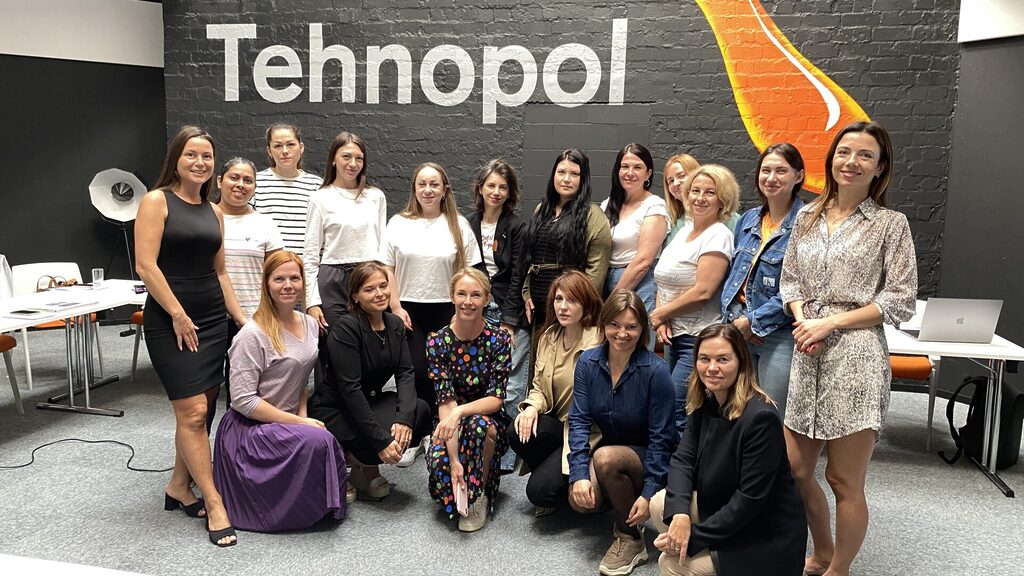
Turning challenges into opportunities for positive change
For these women, starting a business represents more than financial independence—it’s a way to regain control and build a sense of purpose after experiencing life-altering upheavals.
Dariia’s mission is deeply personal. “We aim to help Ukrainian women unite and become a driving force in promoting peace and socio-cultural change worldwide,” she explained. “At the same time, this media platform will serve as a vital support system for Ukrainian women, aiding them in adapting to life in a new country, fostering socialization, development, and self-realization.”
Olha’s business idea stems from her own health journey and a desire to help others. “I’ve experienced the healing power of natural supplements and want to make these products accessible,” she said.
For Anna, Frutiki is an opportunity to promote healthier lifestyles while growing a sustainable business. “We want to show people that healthy snacking can be both delicious and good for you,” she explained.
The incubation program will help the women take the next necessary steps
The next phase in their journey is a six-month pilot incubation program, designed to provide hands-on mentorship, industry connections, and in-depth workshops tailored to each business.
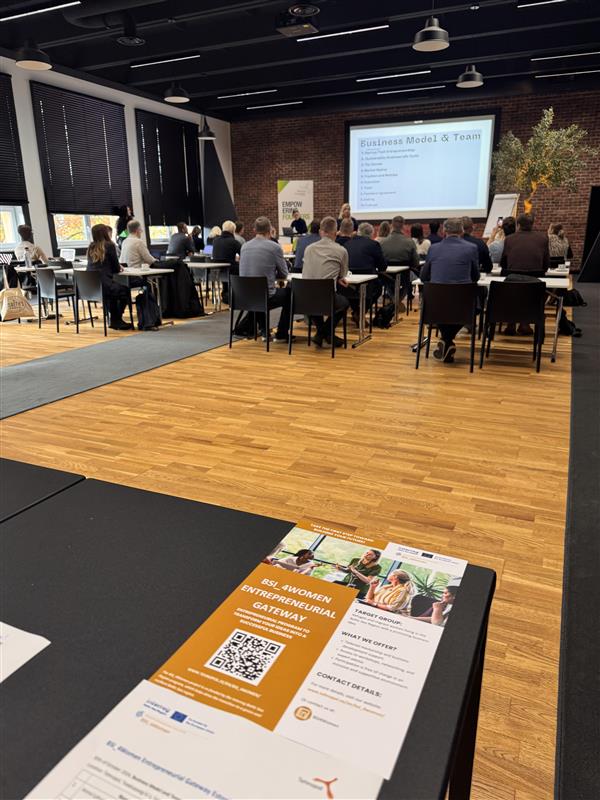
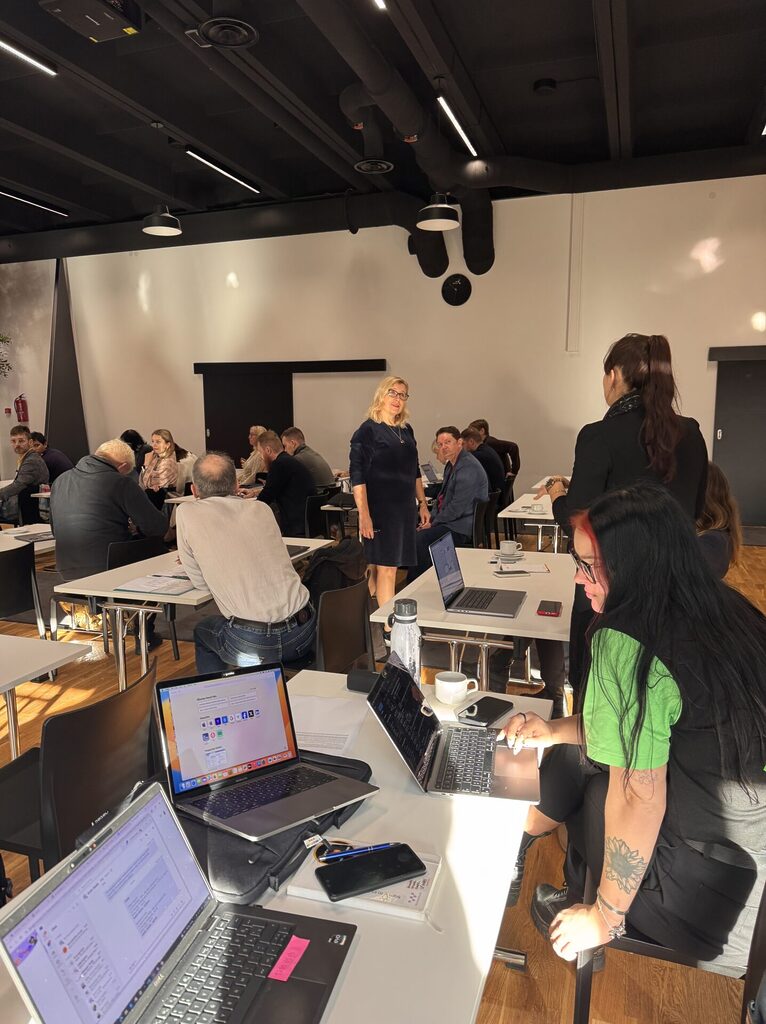
Anna is eager to scale Frutiki’s operations and reach new markets. “With the incubator’s support, we aim to expand our B2B model and grow our sales across Europe,” she said. “We believe this will help us increase our sales volume fivefold.”
Olha hopes to leverage the program’s resources to systematically develop her e-commerce platform. “The accelerator will help me stay on track and ensure I’m covering all the critical steps to launch successfully,” she noted.
Dariia is focused on launching her media platform in the testing phase. “I’m excited to work with mentors who will help turn this vision into a reality,” she said.
A shared journey towards success
The BSI_4Women accelerator is not just a business program—it’s a transformative journey for these women. Over the next six months, the women will work tirelessly to bring their visions to life, supported by a community that believes in their potential. By providing them with the tools and community to succeed, Tehnopol is contributing to Ukraine’s recovery by helping these women rebuild their lives, creating a ripple effect of positive change.
“These women have already shown incredible resilience and courage,” said Katrin Senkevitš. “The next six months will be about turning their ideas into impactful ventures. We’re honored to be part of their journey and can’t wait to see what they achieve.”
Stay tuned as these inspiring entrepreneurs take their next steps, shaping the future of innovation and inclusivity in Estonia.
Read more about the BSI_4Women project here.
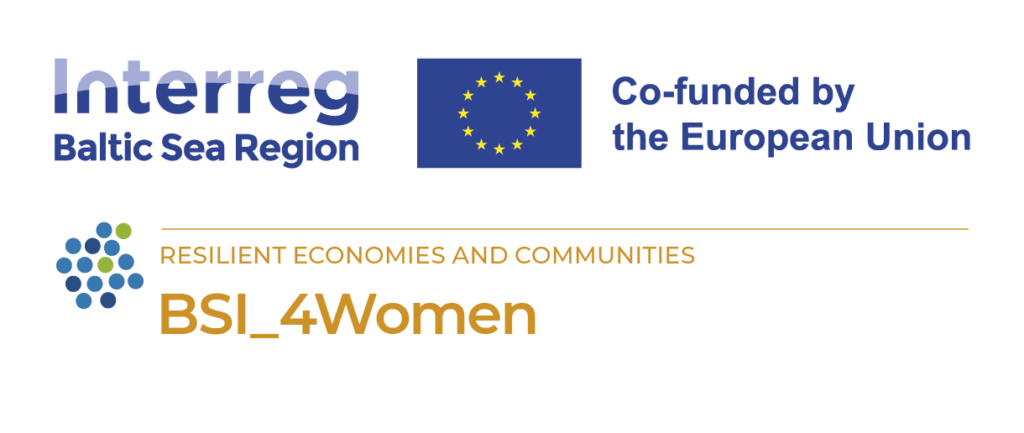
First ecosystem kick-off event of the DIGILUNG project was a success
The DIGILUNG project continues to improve the quality of life for those suffering from COPD. The first ecosystem kick-off meeting took place in May 2024, with the initial pilots set to start soon and the first results are on the horizon.
The partners of DIGILUNG project were present at the 12th The International Primary Care Respiratory Group (IPCRG) Conference to increase interest in the project among potential target groups and raise awareness among ecosystem stakeholders. We wanted to show the participants how it is possible to revolutionise COPD care through integrated cutting-edge AI and digital health solutions.
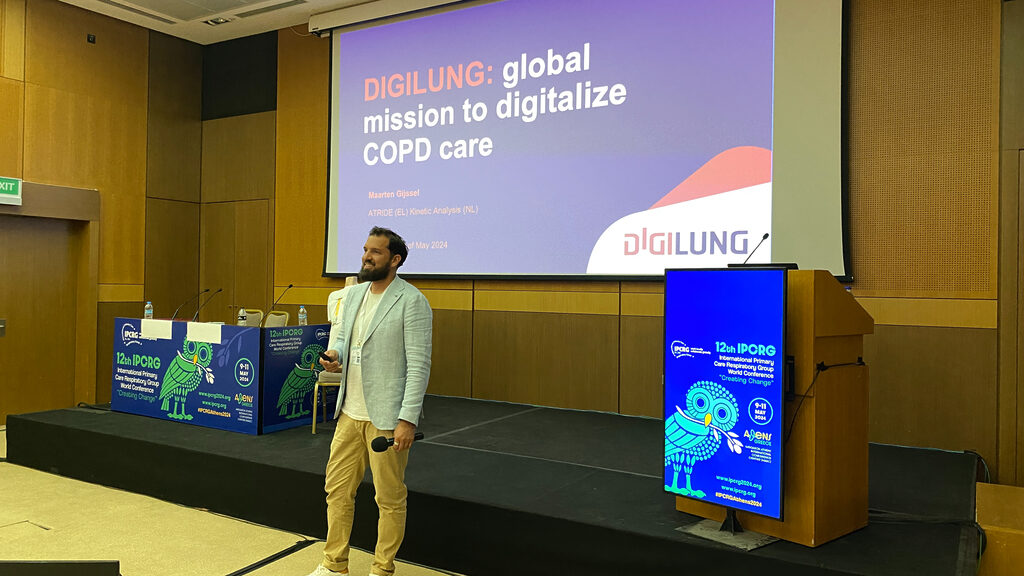
Initial interest in the project has been promising
The IPCRG conference brought together experts from around the world interested in respiratory care. We had the pleasure of speaking to many of them to present the promising solution combining a lungshirt with AI platform offers. We hosted a device workshop where Maarten Gijssel from ATRIDE talked more in details about the Lungshirt and presented the first prototype.
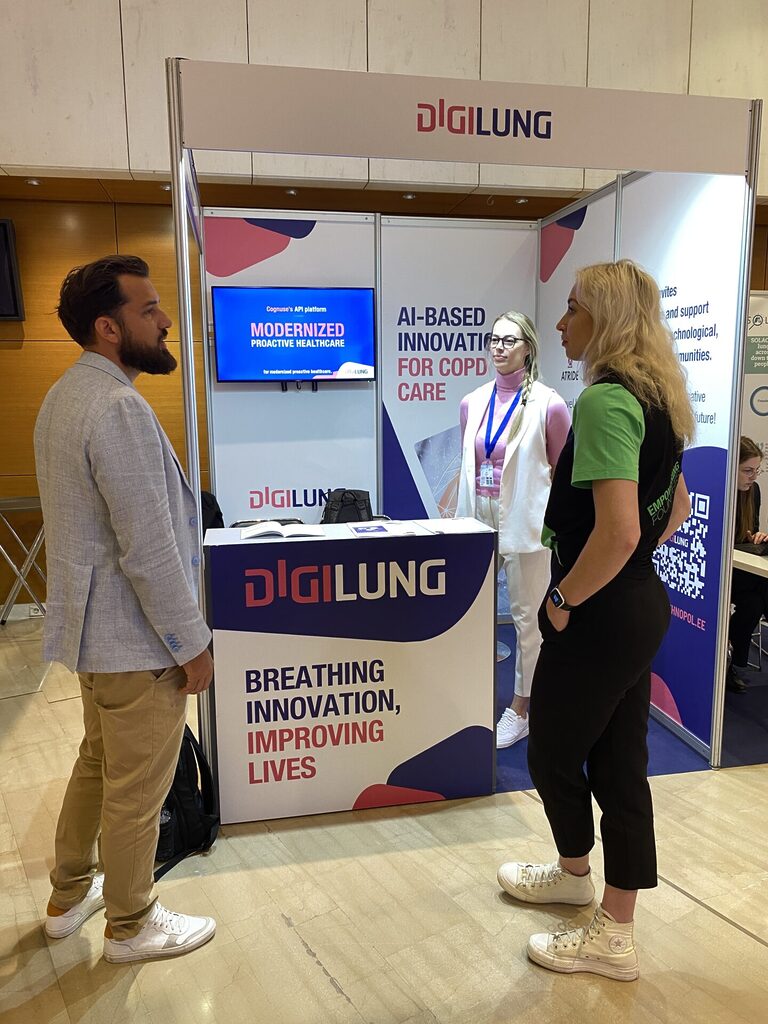
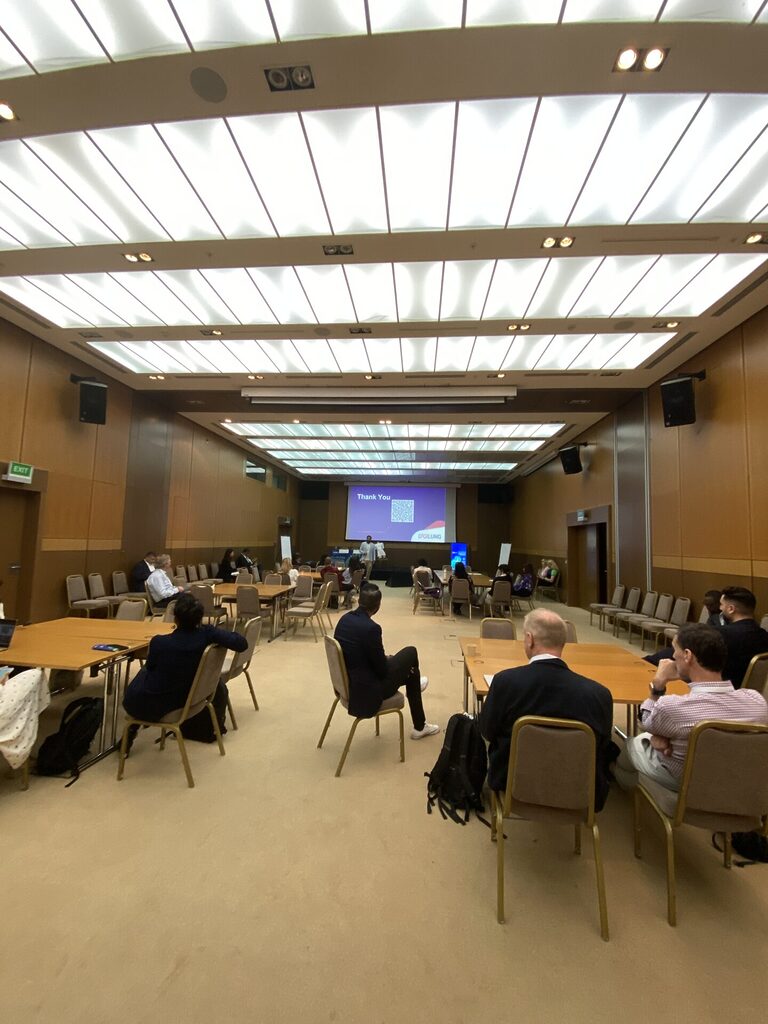
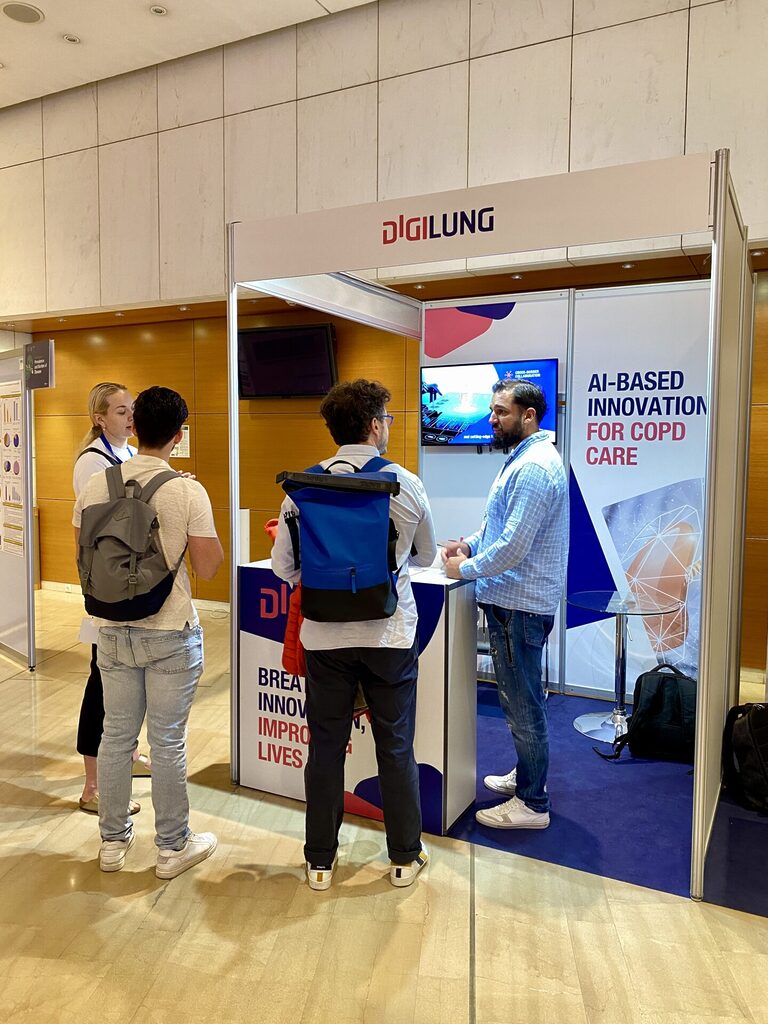
What does the project mean to the partners?
Chronic obstructive pulmonary disease (COPD) is the third leading cause of death worldwide, affecting millions of people and causing a significant economic burden. The partners in this project are excited to contribute to addressing these challenges.
Maria Kontogiorgou, the founder and CEO of a Greek wearable startup ATRIDE, says that to their company, Digilung embodies their vision to blend cutting-edge technology with human-centric design and social impact. By pioneering innovative solutions like smart clothing for respiratory care, they’re not just advancing healthcare but also championing accessibility and personalisation in their products.
For Julien Lebleu (PhD), a clinical researcher from company MoveUp, being part of the Digilung project feels like a natural extension of his journey. Through a pilot, their digital platform will bridge the gap between patients and care providers. He says “Patients need to take control of their health, while care providers are lacking longitudinal data insights. The Digilung project will help us navigate complex terrain, as innovation in healthcare is a lengthy process.”
Cognuse has been engaged in digital health interventions for patient suffering from chronic disease since 2016 with light weight data capture and interoperability middleware development. According to their CEO, Andres Mellik, their CDM module will enable seamless and secure data exchange between the MoveUP and Atride platforms and further contribute to a multidisciplinary approach in delivering effective monitoring for COPD patients. “As our solutions have been built to be deployed at scale it will collectively enable new business models and verticals for all project participants,” says Mellik.
Vrije Universiteit Brussel (VUB) plays a key role in supporting these innovative activities by developing AI algorithms and analysing legal and ethical considerations. Clinical testing and validation are carried out in partnership with the Research Foundation of the General University Hospital of Valencia (Fundación Investigación Hospital General Universitario de Valencia).
Digilung’s vision for COPD Care
Although each project partner and each solution is invaluable to succeed, the project’s vision goes beyond individual innovations, focusing on building a groundbreaking digital health ecosystem specifically for the COPD market. This vision centers on fostering successful interregional collaboration by uniting various stakeholders, adopting advanced technologies, and implementing strategic approaches. This cooperative structure aims to enhance COPD patient care, raise service quality, and create new business opportunities for small and medium-sized enterprises.
Get in touch with us to help transform the landscape of lung disease treatment!
The project is funded by the European Union. The expressed views and opinions belong solely to the author(s) and may not necessarily reflect the views of the European Union or EISMEA. Neither the European Union nor the funding institution can be held responsible for the expressed views.
The Estonian recruitment agency is targeting the Dutch market
Tehnopol is part of the joint Northbound Scaleups (NBSCALE) project, which helps companies expand into new markets. The recruitment agency Workbite founded in Estonia has been to the Netherlands to meet potential partners in order to expand its activities.
Workbite is a job matching and hiring service for the supply of labour, and it also provides large-scale cleaning services. It works in Estonia with several well-known hotels and is taking an interest in expanding abroad to provide services elsewhere. One of the founders of Workbite, Kreete Juurak, said that the meetings in the Netherlands were mainly in small towns and rural areas and were held to gain some background on the local market.
The company had arranged five meetings in advance, of which only two actually happened, because one recruitment agency was closed for the summer holidays, a tulip farm had to cancel its meeting because it had received a large order, and the Ibis hotel chain completely forgot about the meeting. The enterprising startup was not discouraged though and simply went from door to door visiting other interesting businesses to discuss its services in more detail.
“It was very sad that three of the meetings we had arranged did not happen, but it was exciting to travel around and find a range of different companies and just walk in the door and introduce ourselves”, said Juurak.
The most successful meeting was at Damen Shipyards, which took its visitors on a tour of the production facilities, and it is planned that there will be further contact in the autumn at the management level. If this should lead to a lasting partnership, Workbite will be able to help provide work for several specialists and warehouse workers.
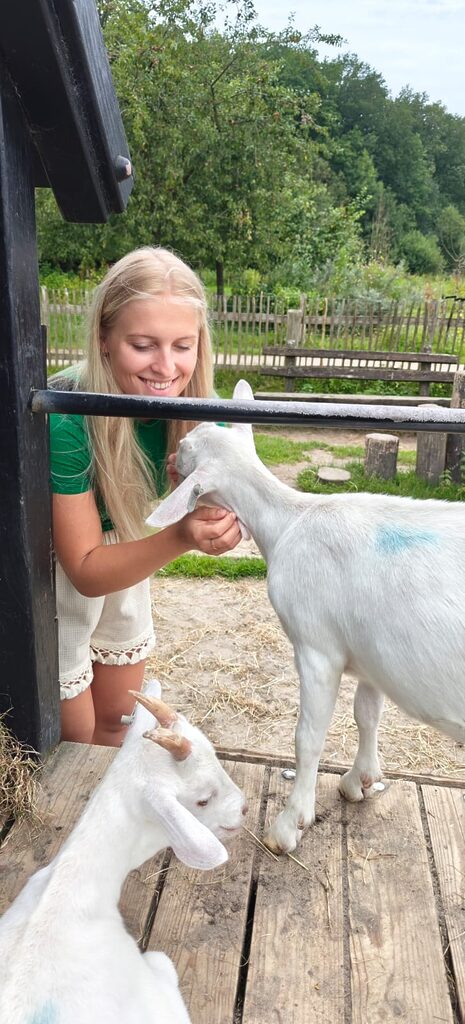
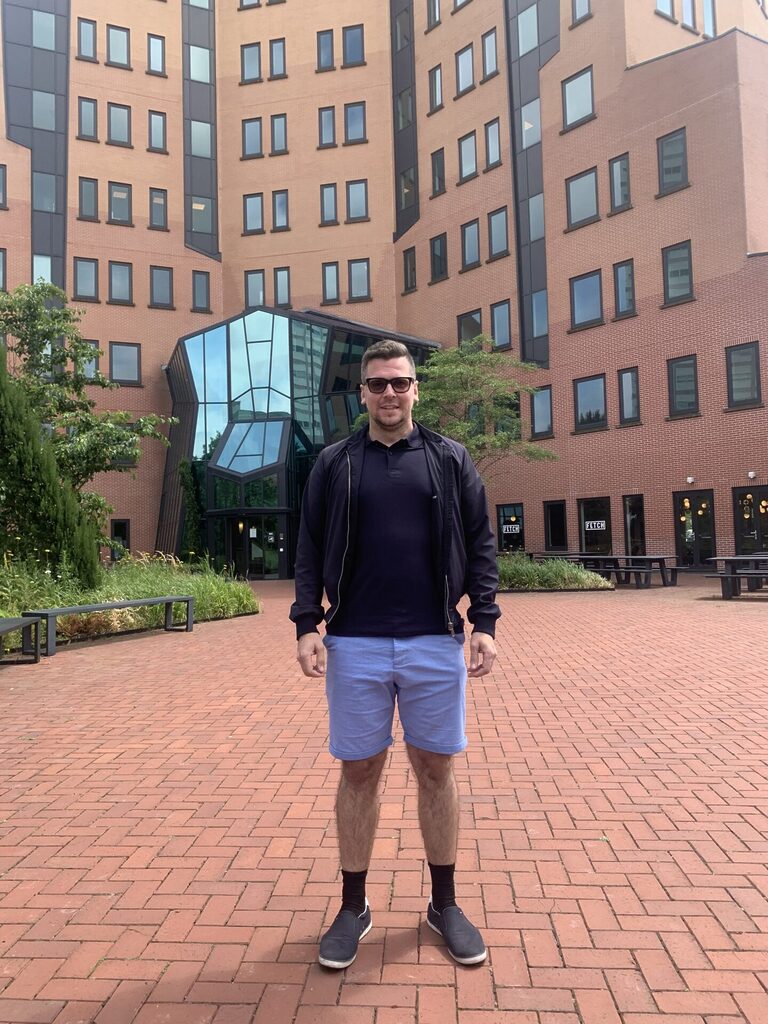
There were also entertaining adventures, as for example one vineyard had misunderstood from an earlier agreement that the Workbite representatives were themselves volunteering to work in the fields. “The whole enormous vineyard is worked by just one farmer, who owns it, and all the other staff are volunteers. They work with the local authority and a social worker comes with elderly dementia sufferers several times a week to work with the vines. They invited us as well to work the clay together with the elderly. That meeting did not go how we had initially planned, but we had a coffee and chatted with them, and it all worked out well”, recounted Juurak.
She said that gig work is tightly regulated and well respected in the Netherlands, unlike in Estonia. “Companies there are used to the idea and the nature of temporary labour, and they plan for the cost of it in advance in their budgets”, she said, adding that the intermediation fees can be up to 17 times what they are in Estonia.
The biggest competitor in Holland is the global job matching and hiring platform Indeed, which advertises job offers for temporary work and works with large companies like Toyota and Ikea. They generally do not deal with smaller clients though. There are also various other hiring agencies working in Holland, but Juurak said they did not see any competitors that were operating a platform like Workbite.
The biggest challenge in Holland would be to create a new community. “We will of course give a large number of our Estonian users the chance to work abroad for a good wage, but we will also need to employ locals and other foreigners who have moved to Holland”, explained Juurak.
Workbite has set up a subsidiary Workbite Cleaning to handle the large-scale cleaning projects, and it plans in future to prioritise their cleaning service even more. “We can see a need in this market for improvement in the quality of service, in staff retention, and in wage levels”, noted Juurak.
Northbound Scaleups (NBSCALE) is a joint project run by Tehnopol, the Turku Science Park in Finland and Movexum in Sweden to help companies expand into new markets.
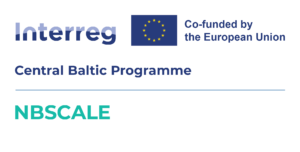
EUDIS Hackathon sparks innovation in Europe’s defence sector
The first EU Defence Innovation Scheme (EUDIS) hackathon, themed ‘Digital in Defence,’ unfolded with success during the weekend 31 May to 2 June. This new and unprecedented for the EU initiative brought together six visionary local hackathon hosts Belgium, Greece, Hungary, Italy, Lithuania, and Poland, fostering the birth of innovative ideas and solutions in the defence sector. The event contributed to reinforce the innovativeness of Europe’s defence sector with a focus on the challenges ‘Subsea Infrastructure Protection’, ‘Improving Situational Awareness’, and ‘Cybersecurity in Defence’.
Co-operation breaks barriers
A hackathon is a competitive innovation event where its participants (often students or start-ups) with different competences, such as technical, business, military and legal, form teams co-operate and build solutions together towards a specified challenge. The solutions could come into reality in the shape of services, prototypes, applications, or hardware devices. The teams are supported by mentors and experts from the field of the challenge concerned, and from the business and innovation ecosystem. The event is usually held during a weekend, and in the end of the weekend, a jury of experts selects a winner according to pre-defined communicated criteria.
The EUDIS hackathon is one of the outcomes of the EU Commission’s efforts through EUDIS on creating a more innovative EU defence technological and industrial base. The hackathon teams, mentors and experts from the EU Member States Ministries of Defence, and representatives from the innovation and business community from EU Member States and Norway, came together to address the commonly shared challenges described above.
Intense hackathon weekend of innovation
The EUDIS hackathon weekend kicked off by the Director for Defence Industry François Arbault, at the EU Commission’s Directorate-General Defence Industry and Space (DG DEFIS), on Friday 31 May, setting the stage for an intense weekend of innovation and skills development. Participants engaged in mentoring sessions with the mentors and experts to advance their innovative solutions.
And the winners are…
On Sunday 2 June, six winners were selected, one from each local hackathon host – Cefriel (Italy), Demokritos (Greece), Design Terminal (Hungary), Sopra Steria (Belgium), Kaunas University of Technology (Lithuania) and Krakow Technology Park (Poland) – by a distinguished jury comprising of defence and business mentors, whose invaluable contributions made the event possible. The local winners showcased their innovative projects.
- EUnify (Belgium), with a solution that combines data from citizens and data collected from sensors to improve situational awareness in military and civilian crisis situations.
- Superlabs (Greece) is developing solutions to improve the identification of terrorist threats in the digital environment.
- Fraudshield (Hungary) provides a comprehensive cybersecurity solution to defend against phishing.
- Euri Swarm (Italy) develops a platform for cost-effective drone swarms to have information to minimize losses.
- Eye of Lizdeika (Lithuania) provides a quick on-demand security sensor network that can be used in both civil and military applications.
- Lastly, Aqua Hub (Poland) provides a docking station that deploys drones, reducing costs while patrolling high-value subsea infrastructure.
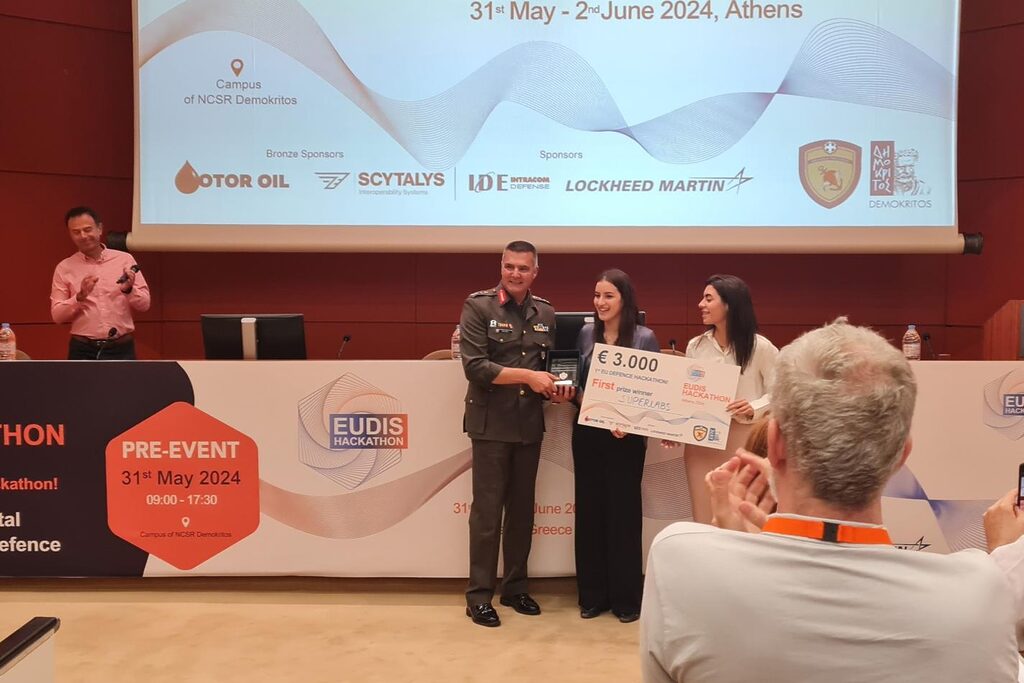
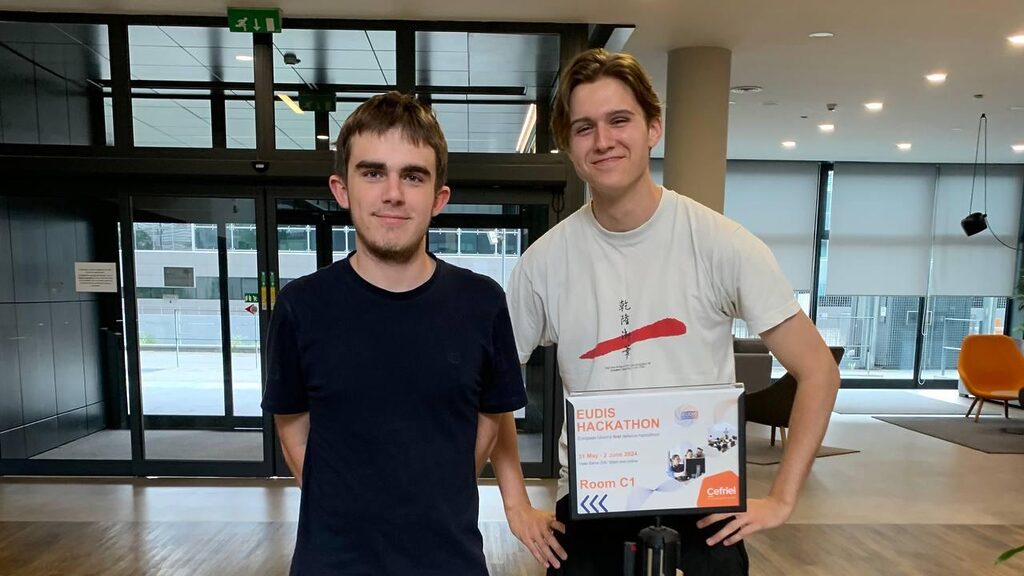
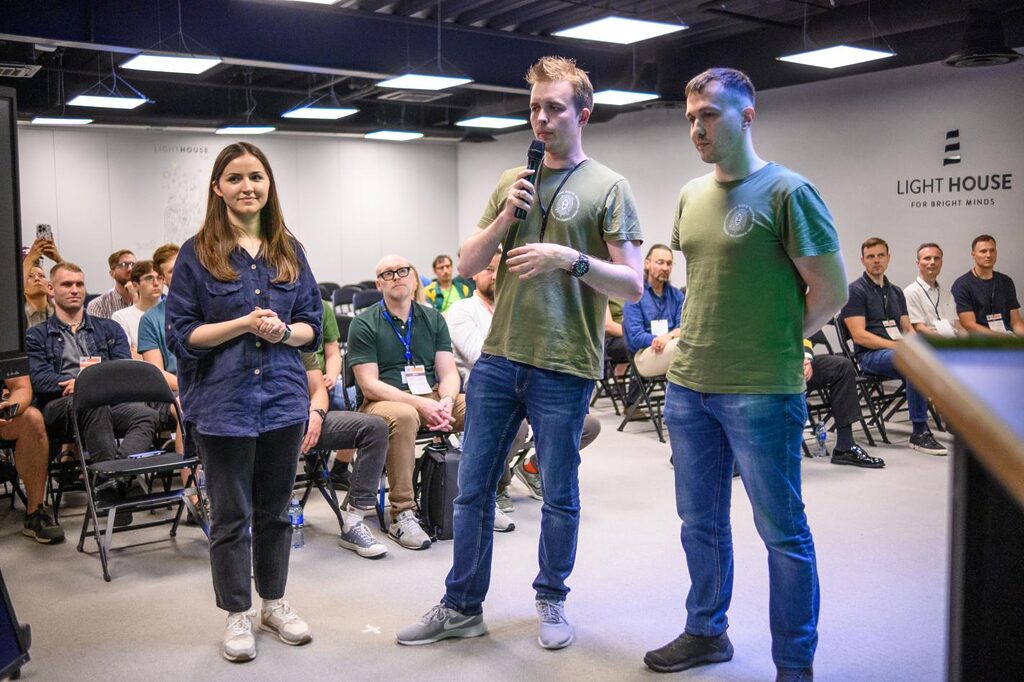
On 5 June, a virtual EU Wide Competition took place where the six winners pitched their solutions to a jury, selecting the top three teams who advanced to a six-month mentoring program. The finalists, Aqua Hub (Poland), Superlabs (Greece), and EUnify (Belgium), impressed the jury with their defence innovations. Their success highlights the potential for co-operative problem-solving and sets the stage for future EUDIS Hackathons. These top three winning teams have on 12 June entered a Mentoring Programme of six months aiming at developing their solutions to meet defence user needs head-on. The three runners-up have entered a two-month Mentoring Programme. The teams will have mentoring sessions with selected defence industry experts designed to help them advance the development of their solutions. The top three winning teams will also be invited to present their ideas, solutions or prototypes at a big technology or defence event, when having completed their programme.
A bright future for EU defence
This hackathon has demonstrated the impact of co-operation and the potential of innovation. The strong team spirit, skills needed, co-operation, and willingness to develop knowledge and share expertise among participants from diverse backgrounds have contributed to enhance EU defence innovation. The success of this first edition sets a promising precedent for the next EUDIS Hackathon taking place in Spring 2025, which is expected to have further local hackathon hosts and participants and create more innovative solutions to address the EU’s rapidly evolving defence needs, inspiring a brighter future and bring talented skills to the EU defence industry.
European female entrepreneurs gathered in Tallinn
As part of the recently concluded startup conference Latitude59, a meeting focused on promoting female entrepreneurship, titled “Female Founders Summit by Womenture: Let’s Woman up the Business!”, brought together participants from across Europe. The event aimed to promote female entrepreneurship and provide a platform for women to share their ideas and experiences.
Womenture is an initiative with a mission to encourage women to engage in entrepreneurship. Currently, only 15% of European startups are founded by women, and a mere 1% of investments in the startup sector go to companies founded by women. Womenture aims to change this situation by offering training, events, and mentoring sessions that empower women in the business world.
The Womenture pre-accelerator program received hundreds of applications from 39 countries, from which 20 early-stage startups were selected. These teams underwent an intensive seven-week program, culminating in five teams presenting their ideas at a pre-event for Latitude59.
Three of the teams in the program focus on the possibilities of artificial intelligence: Bulgarian startup Application Mastery uses AI to help students apply to international study programs, Czech Vetee.ai offers AI-based veterinary advice to pet owners, Dutch Denning simplifies the reading of court decisions for law students. In addition, Portuguese OceanCare provides biocide-free solutions for ship hull protection, and Estonia-based JobBuddy app connects job seekers with employers who value their unique skills and lifestyles.
There was also a #IAmRemarkable workshop initiated by Google, which encourages people to share their achievements. The workshop highlighted the importance of showcasing one’s achievements for gaining confidence and career success, especially among women. Self-promotion is often seen negatively due to established gender roles and norms. However, research shows that highlighting one’s achievements increases confidence and helps in climbing the career ladder.
Keynote speaker, investor Kristi Saare, emphasized the importance of financial issues for a budding startup and the significance of founders having financial knowledge. She noted that financial competence is critical for both the survival of the company and attracting investments.
Participants also received an overview of the Estonian e-residency program, and Startup Estonia shared success stories and opportunities in the Estonian startup sector. The day ended with a panel discussion featuring CARÁ founders Carina and Keiro Vantsi, who stressed the importance of partnership both in work and personal life.
The Womenture project continues its mission to create a more inclusive startup ecosystem for women and looks forward to participation in future events and workshops. The project is implemented by the Tehnopol Science and Business Park, together with partners Design Terminal (Hungary), SpinLab – The HHL Accelerator (Germany), and DEX IC (Czech Republic).
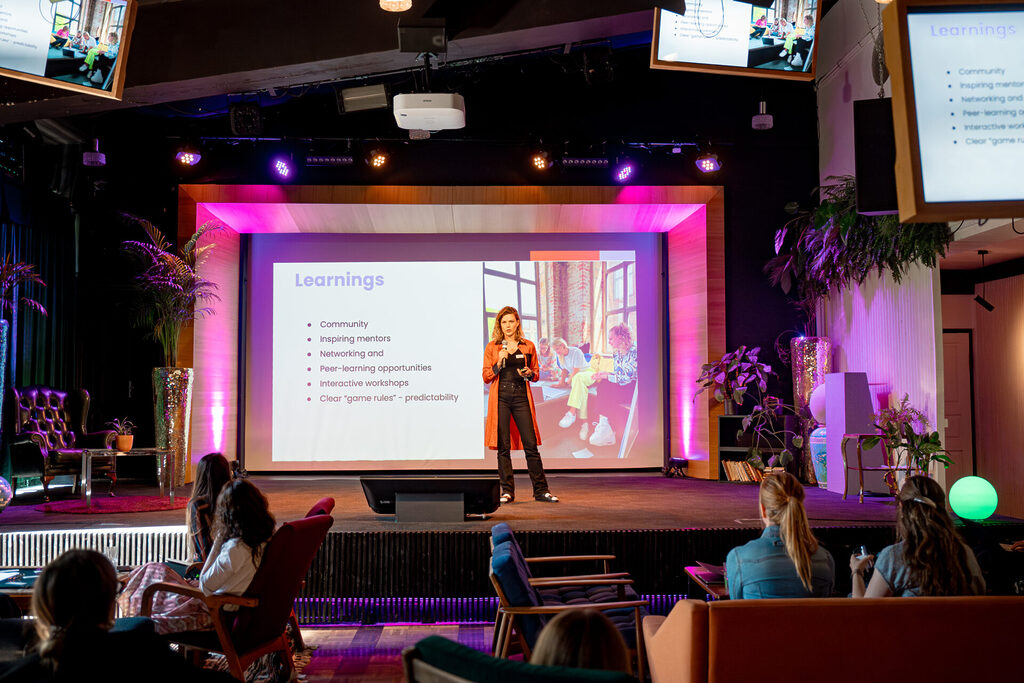
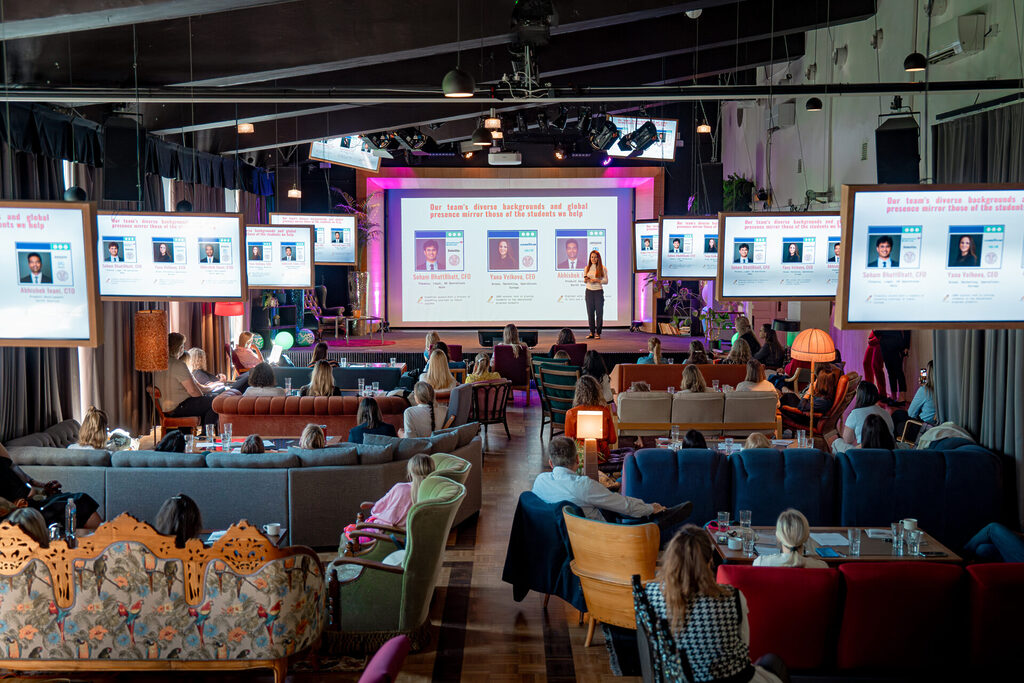
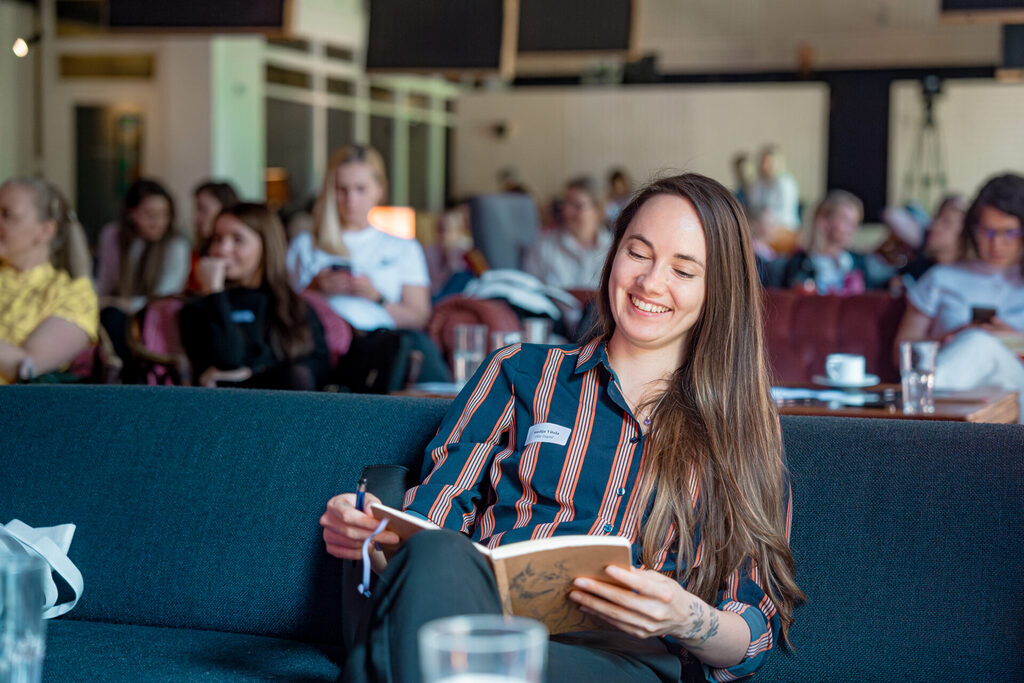
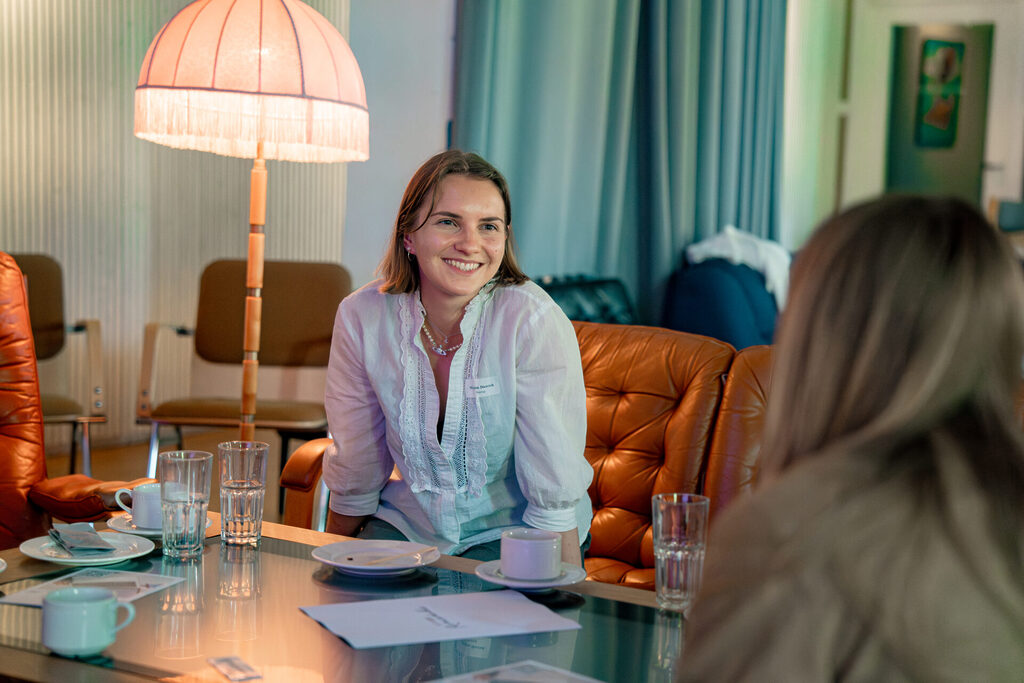
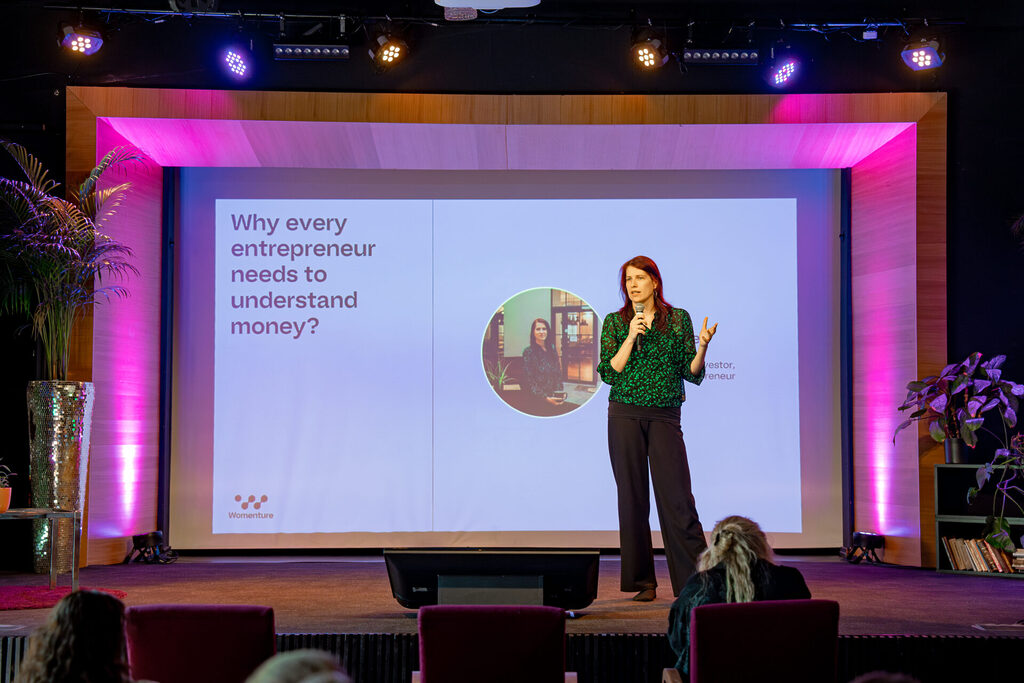
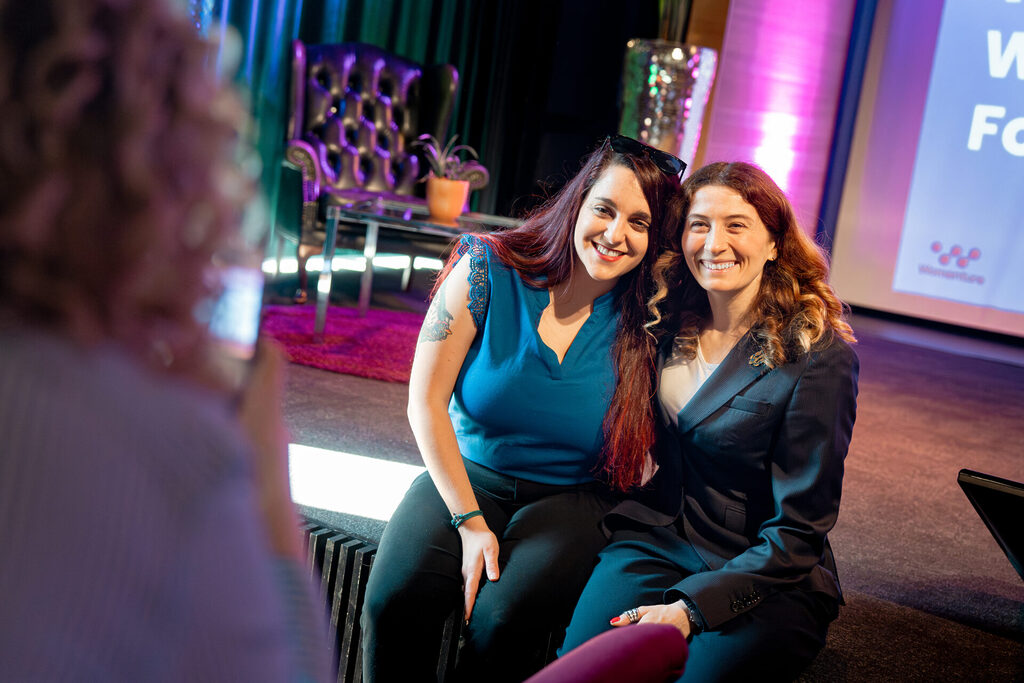
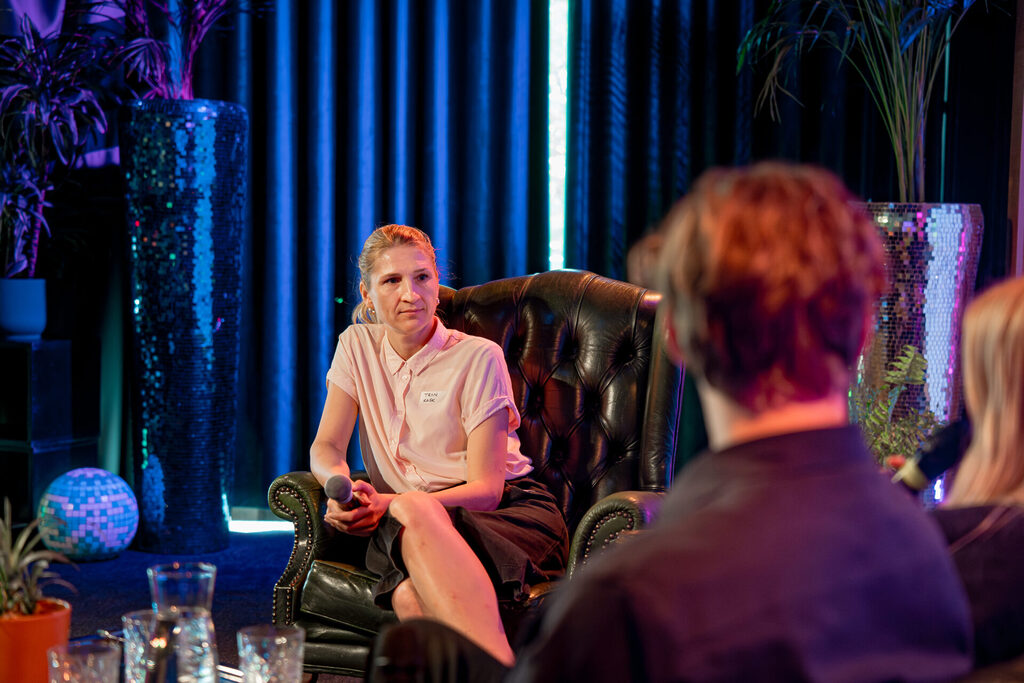
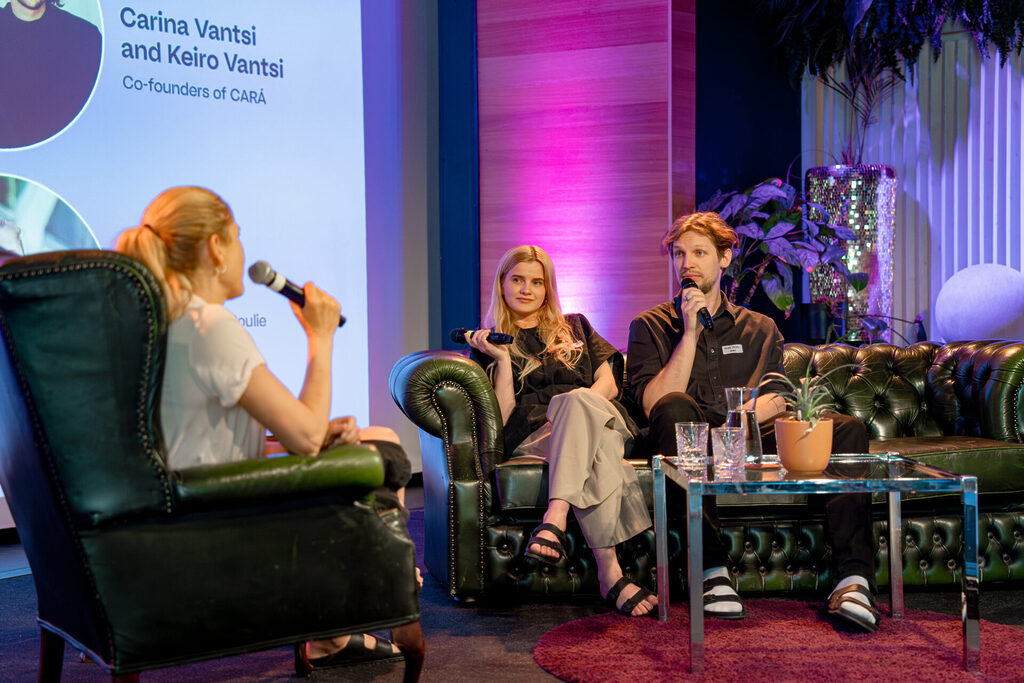
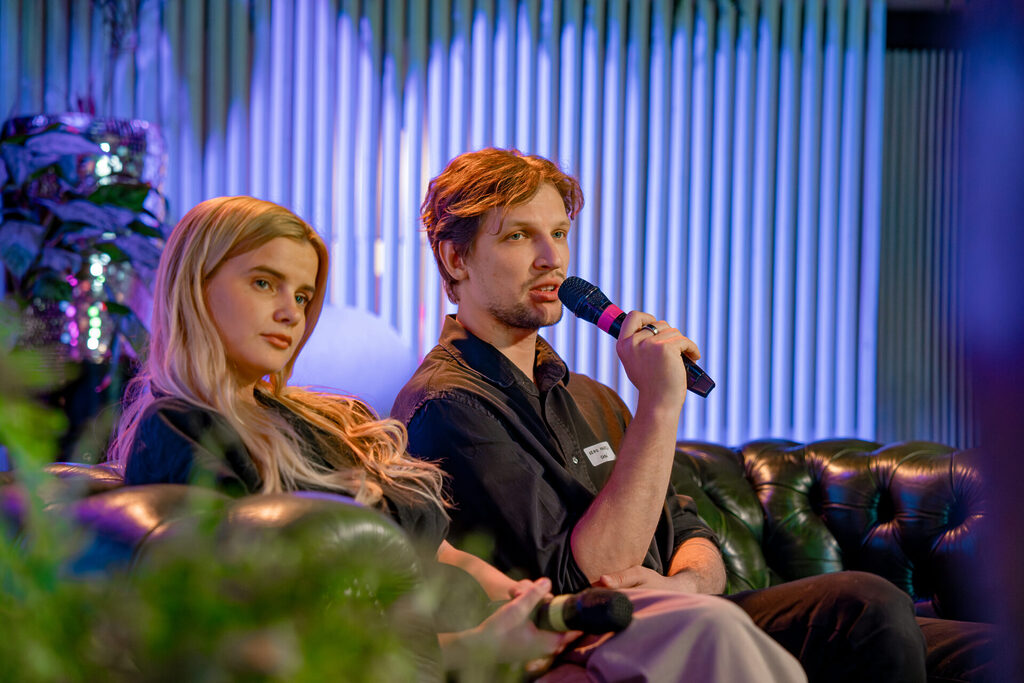
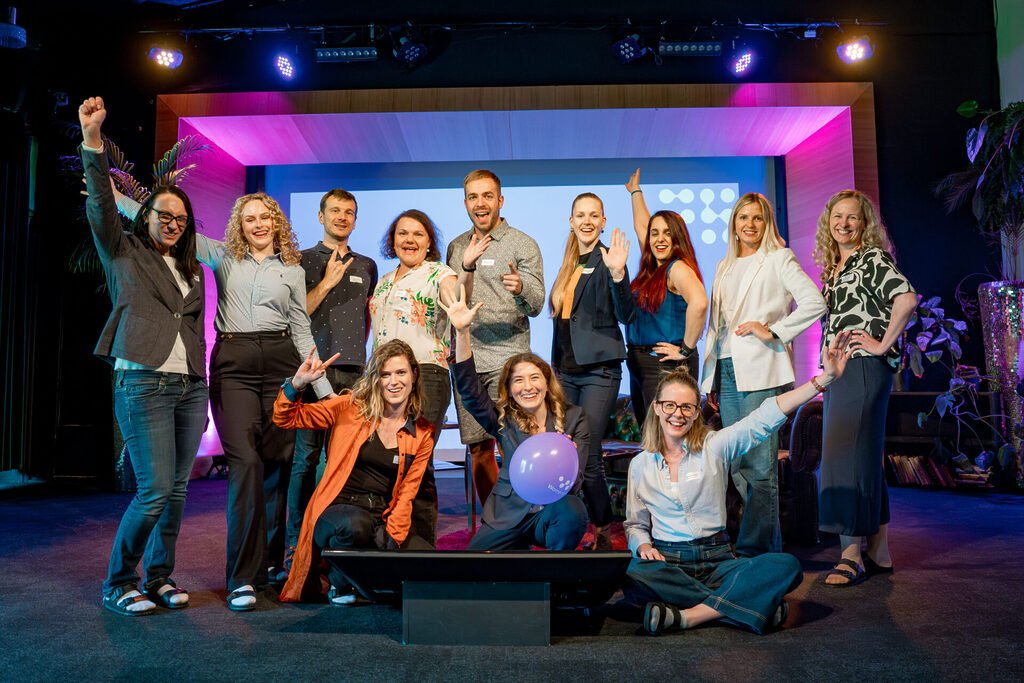
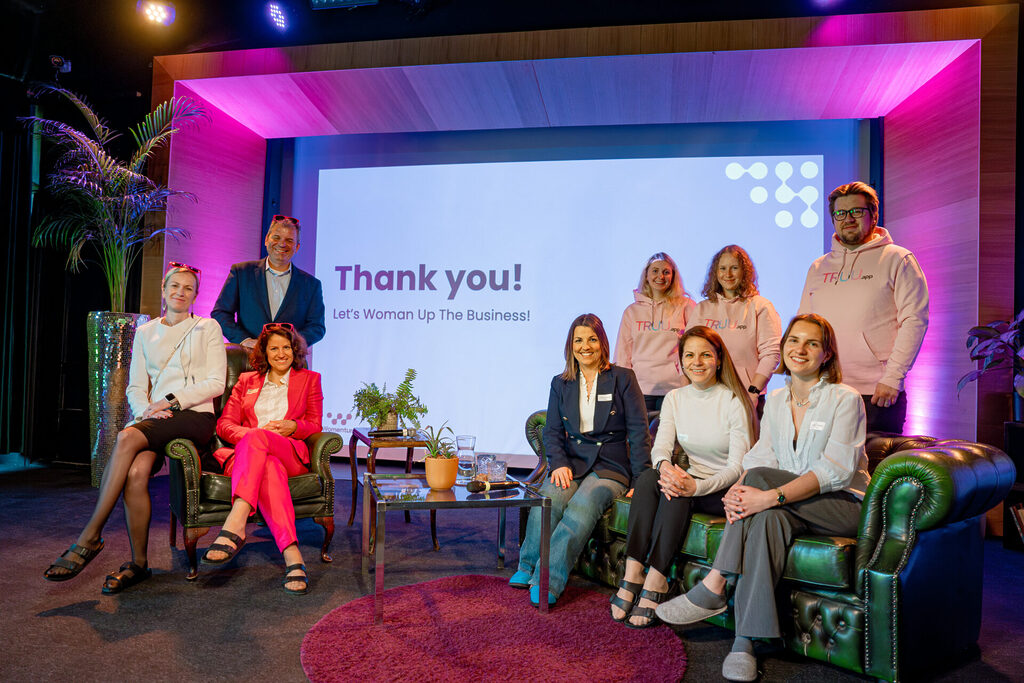
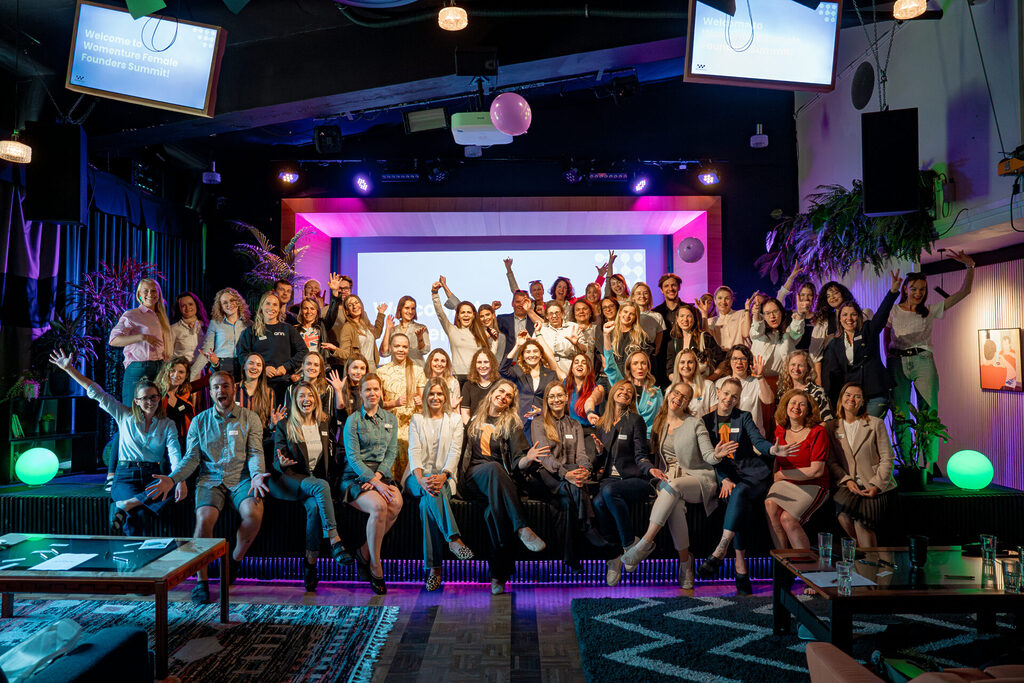
The BSI_4Women Entrepreneurial Gateway is opening soon!
Refugees and migrant women who have had to escape conflict zones, this is your chance to turn your entrepreneurial aspirations into reality! The BSI_4Women Entrepreneurial Gateway is set to open its call for participants soon, inviting you to be at the forefront of business development in the Baltic Sea Region.
The BSI_4Women project, supported by the Interreg Baltic Sea Region Program, empowers female refugees to create innovative and market-adapted products or services. The goal of this project is to contribute to the economic vitality of the region while supporting your journey toward a green and resilient future. This initiative is part of the BSI_4Women Pilot Action implemented in the partnering countries: Poland, Norway, Denmark, Estonia, Lithuania, Latvia, and Sweden.
The program in Estonia will start at the end of August 2024. Keep an eye out for information about registration!
What can you expect from the BSI_4Women Action? A comprehensive pathway that guides you from an idea to a fully-fledged business model. You’ll receive personalised mentorship, participate in workshops, and gain access to a supportive international network. Our program is tailored to your unique needs, ensuring your business idea flourishes.
During the program, you’ll embark on an incubation path that includes:
- Soft-landing: Acclimate to the business environment of the Baltic Sea Region.
- Business Development: Sharpen your business skills through targeted workshops and training.
- Incubation: Work closely with a mentor to develop and implement your Incubation Plan.
Stay tuned for the official call for participants in June 2024!
This is more than just a program—it’s a commitment to your success. We invite you to prepare for this life-changing opportunity. Whether you’re at the idea stage or ready to scale your business, we are here to support your entrepreneurial journey.
Read more about the overall BSI_4Women project here.
Don’t hesitate to contact us if you have any questions or send an email to show your interest in the incubation program: katrin.senkevits@tehnopol.ee
Tehnopol captivated attention at Latitude59 with AI photo art
Last week, the major startup conference Latitude59 took place in Tallinn, and of course, we were there too!
The program was quite packed for Tehnopol this time, as we started already on the pre-event day with the Womenture event and the NATO DIANA demo day, and we were represented on various stages during the main conference days.
On the first day of Latitude59, our Head of Business Development, Martin Goroško, participated in a joint discussion by SEB and the Innovation Leaders Club, where they talked about how to collaborate with corporations and what mistakes to avoid.
Tehnopol’s health technology community hosted a seminar discussing AI and data. The discussion was moderated by Lise-Lotte Lääne, representing Tehnopol’s health tech community member Sorainen, and featured Priit Salumaa (Better Medicine) and P.J. Łaszkowicz (Omnifi Foundation).
The head of the Startup Incubator and NATO DIANA Innovation Accelerator, Kadri Tammai, moderated a main stage discussion on how protecting state sovereignty and developing entrepreneurship can intertwine. The panel included Prime Minister Kaja Kallas, Bolt’s founder and CEO Markus Villig, and Helsingi co-founder Dr. Gundbert Scherf.
In collaboration with TalTech, Tehnopol’s health technology community hosted a seminar on how technology is transforming the healthcare sector and what innovative solutions Scandinavian countries have already implemented. Insights were shared by our community members Dermtest, represented by Priit Kruus, and HeBa, represented by Ain Aaviksoo. An overview of Tehnopol’s health technology community activities was provided by Paulin Jürjens.
At our booth, visitors could learn more about Tehnopol’s various activities as well as NATO DIANA’s plans. We also had a photo booth where anyone could take one – or several – photos, enhanced with AI for an extra touch. By the way, around 2000 photos were taken at our booth during the conference, so you probably saw some of them in your social media feed! A shoutout to the Estonian company Portrai for providing this solution.
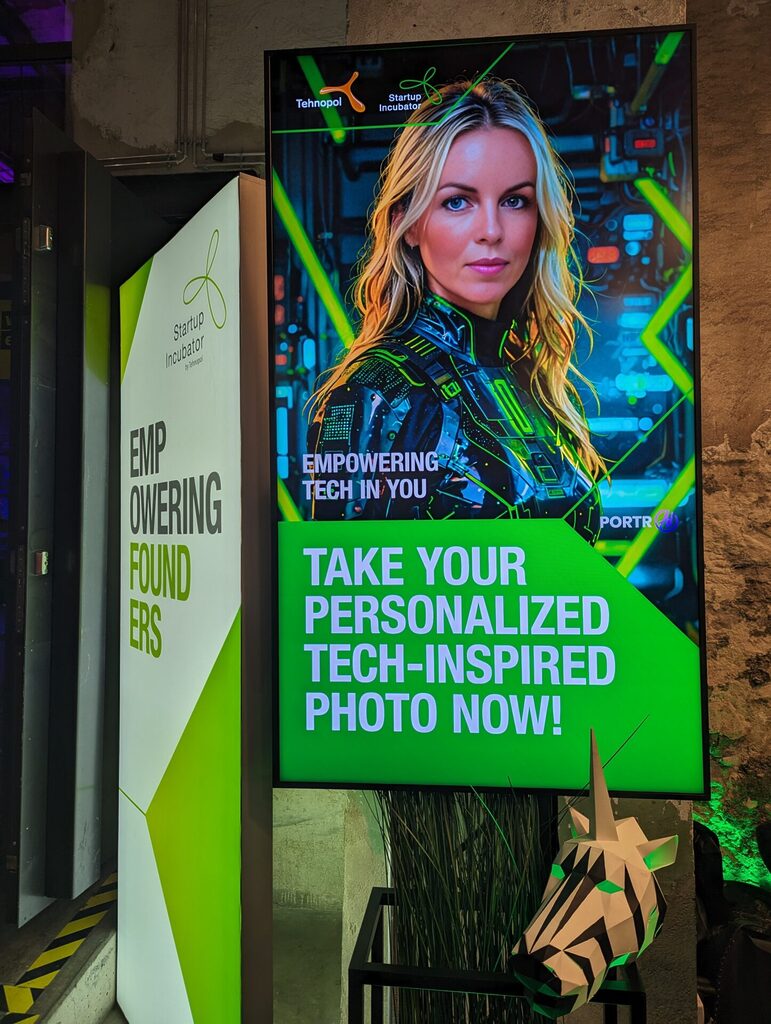
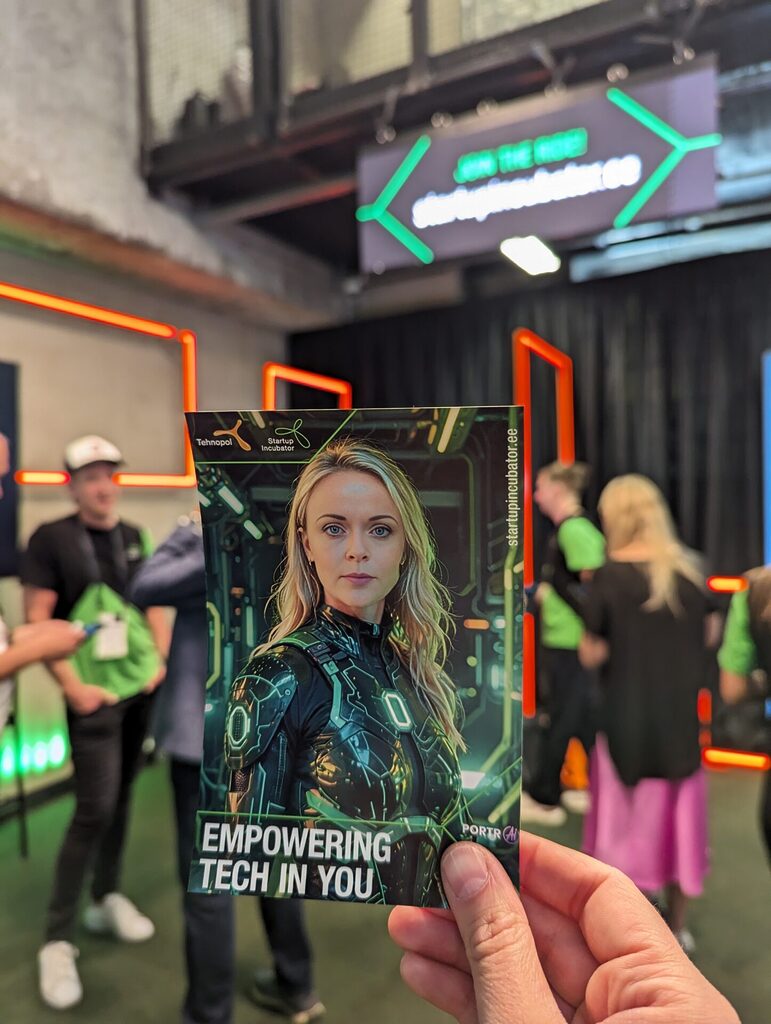
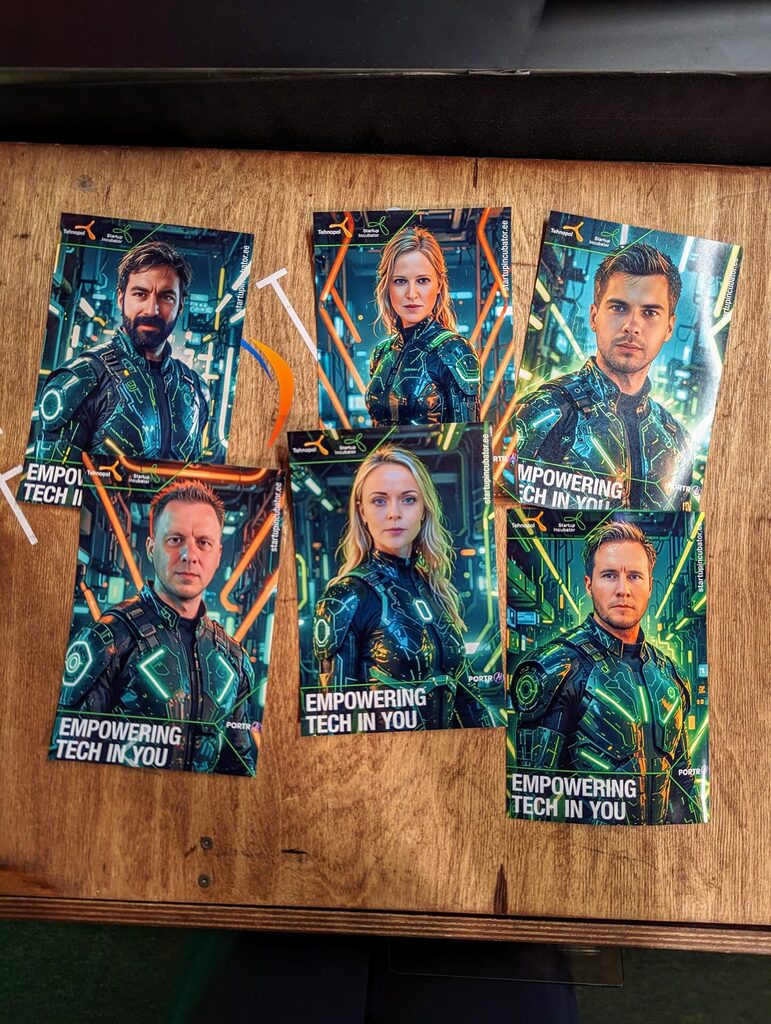
Startups took the stage
This time, both the Startup Incubator and the NATO DIANA Innovation Accelerator teams took the pitching stage. They presented their solutions:
- Lawato: Develops AI-based cloud software to help companies in the legal field work more efficiently and save time.
- Bebo (Startup Accelerator): Creates an innovative virtual assistant in Estonia specialized in comparing food prices, helping customers find the best purchase options among major online stores.
- PhishBite (Cyber Accelerator): Develops a Software as a Service (SaaS) phishing simulation tool that uses text creation software to automatically gather feedback on client data phishing security.
- Holocrow (Startup Accelerator): Develops a unique video technology and image processing platform that allows customers to analyze outputs from installed surveillance cameras.
- Livful (Startup Accelerator): Produces zero-footprint small houses.
- GaltTec (DIANA): Develops fuel cells with exceptionally high power density, enabling them to deliver greater power output while occupying minimal space compared to other technologies on the market. By the way, GaltTec is the only Estonian company selected for the DIANA accelerator.
- Anzen (DIANA): Offers end-to-end cybersecurity services and consultancy to companies in sectors like pharmaceuticals and critical infrastructure installations. Their technology helps protect sensitive or classified data, ensuring information security and data sovereignty for the future.
- GIM Robotics (DIANA): Develops a cost-effective localization solution for armoured vehicles operating in GNSS-compromised environments.
- Dronetag (DIANA): Develops next generation un-jammable and undetectable solution for safe and efficient drone traffic management.
- Goldilock (DIANA): Developed a multi-patented cybersecurity tool for protecting critical assets and data. The technology provides a ‘kill-switch’ that physically isolates assets, allowing them to connect to the internet or other network segments only when necessary.
- IceWind (DIANA): Develops and manufactures micro vertical-axis wind turbine solutions for decentralized power generation for remote, underserved, and extreme environments.
- REVOBEAM (DIANA): Develops low-cost energy efficient anti-jamming antennas for unmanned platforms and IoT devices. The solution is lighter, more efficient, and less expensive than any other product on the market.
- Avoptics (DIANA): Develops high quality photonic solutions for harsh environments. They are producing fibre optic, photonic, electrical and electronic solutions which are suitable for usage f.e. in aerospace and defence sector.
- Lobster Robotics (DIANA): Develops autonomous lightweight and low-cost underwater robots for seafloor photography, enabling quantitative insights with visual mapping.
In the Latitude59 pitching competition, our health technology community member Siffi and GaltTec, participating in the NATO DIANA Innovation Accelerator, made it to the final five. The latter received €100,000 from investors during the competition.
Additionally, the spring round of the Prototron fund created by Swedbank, TalTech, and Tehnopol, ended, and companies presented their solutions. The following startups received funding:
- TraynMe: Helps use external computing power over the network for 3D and video media rendering. Support: €10,000 and €1,500 for legal services.
- Sciflux: Will produce Alzheimer’s disease prevention technology based on blood tests. Support: €15,000 and €1,500 for legal services.
- Audiocat: Produces smart games for visually impaired people. Support: €15,000 and €1,500 for legal services.
- ILUS Bike: Building modular bicycles for rental companies. Support: €35,000 and €1,500 for legal services.
Next, you can meet us at Tehnopol’s Summer Day on June 13th. Register here and see you at the campus!
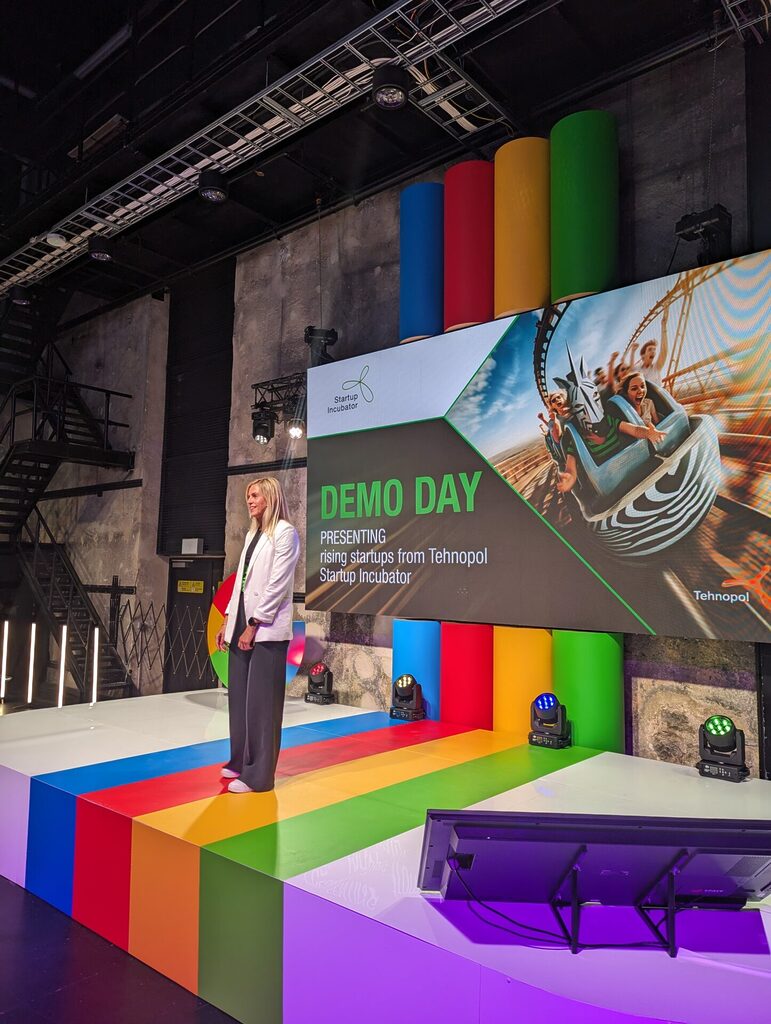
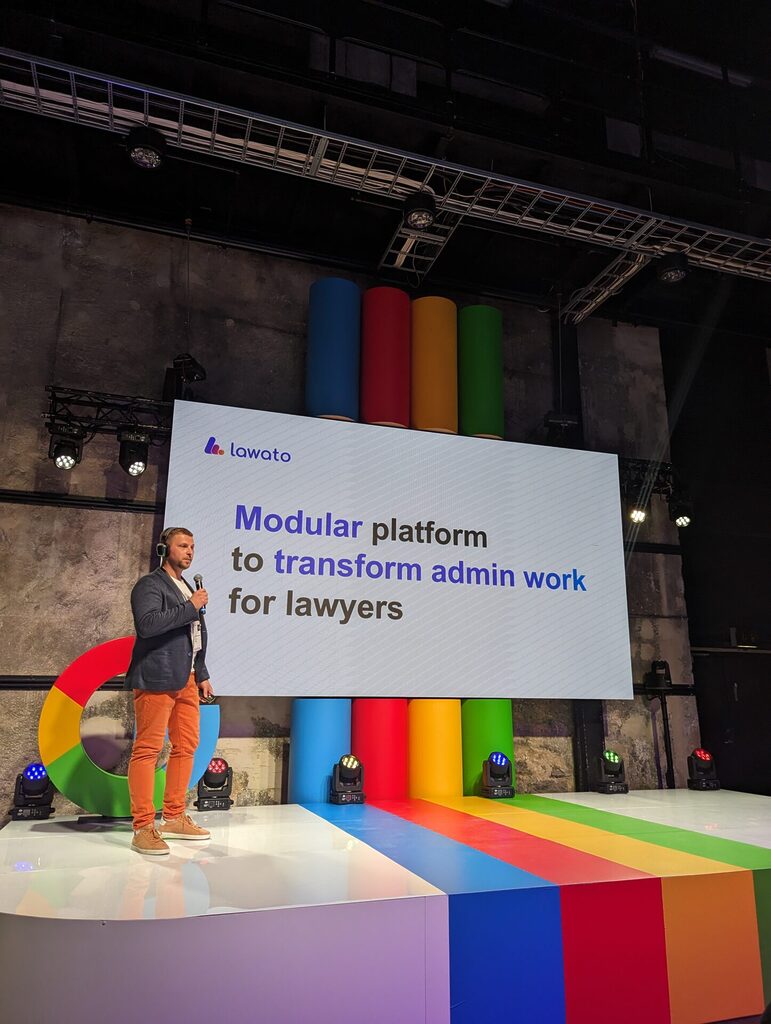
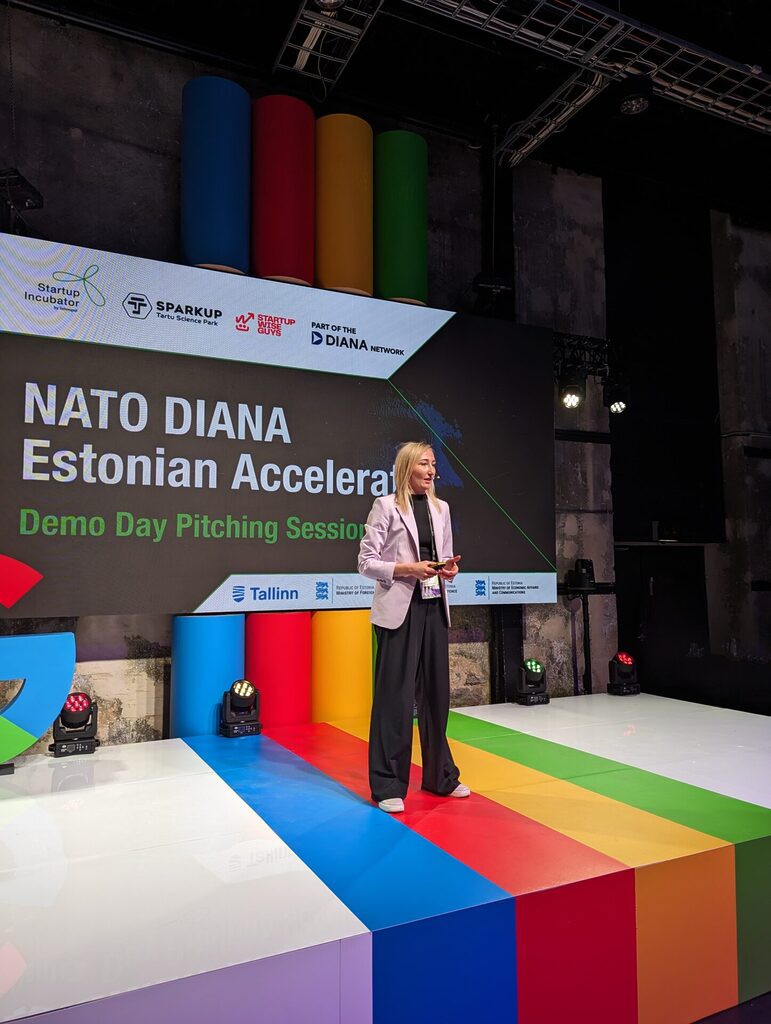
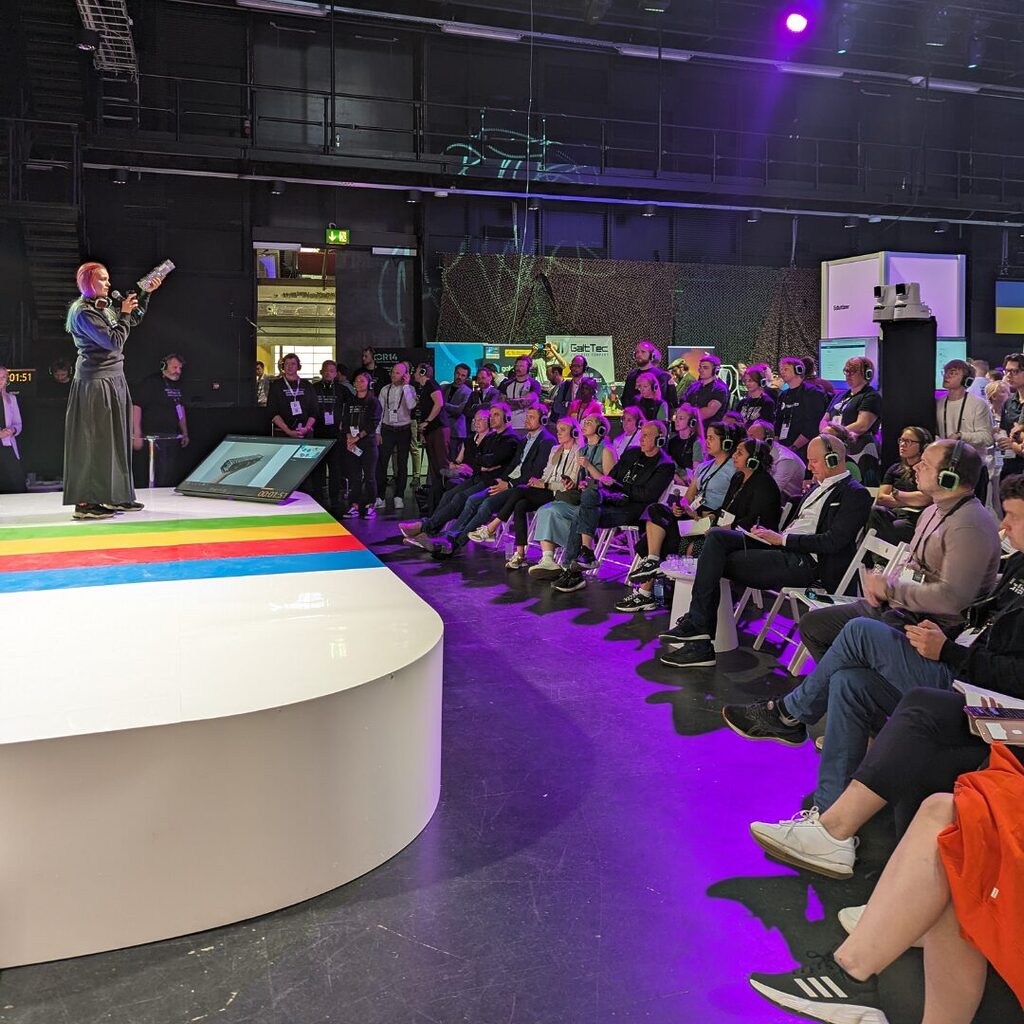
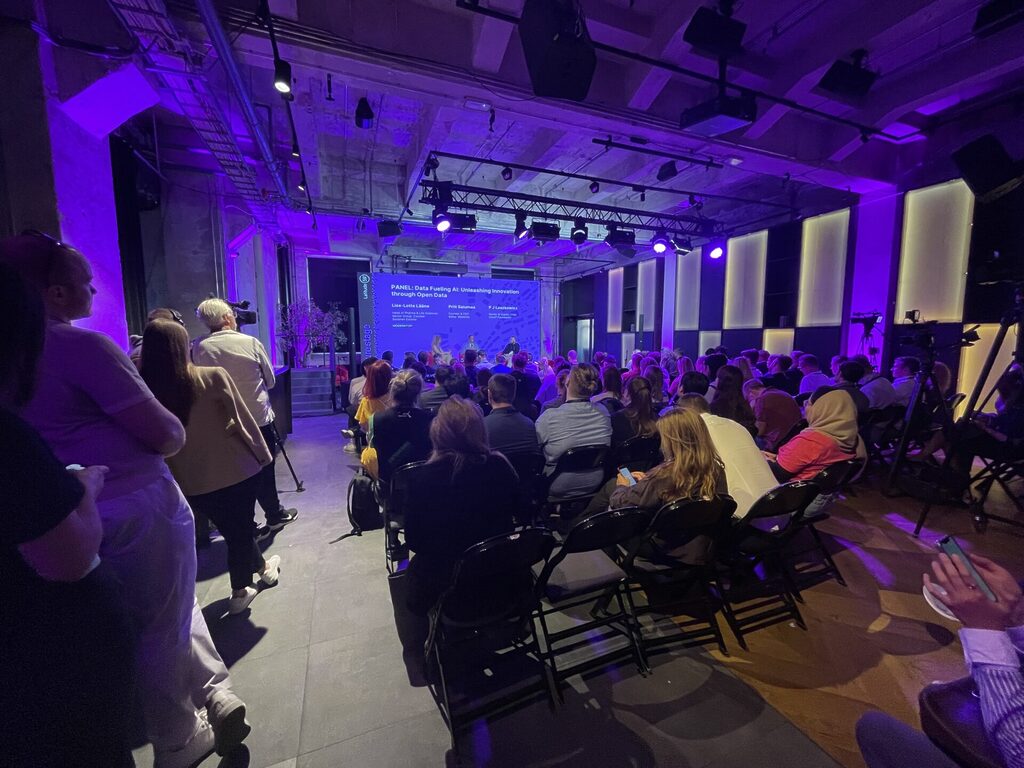
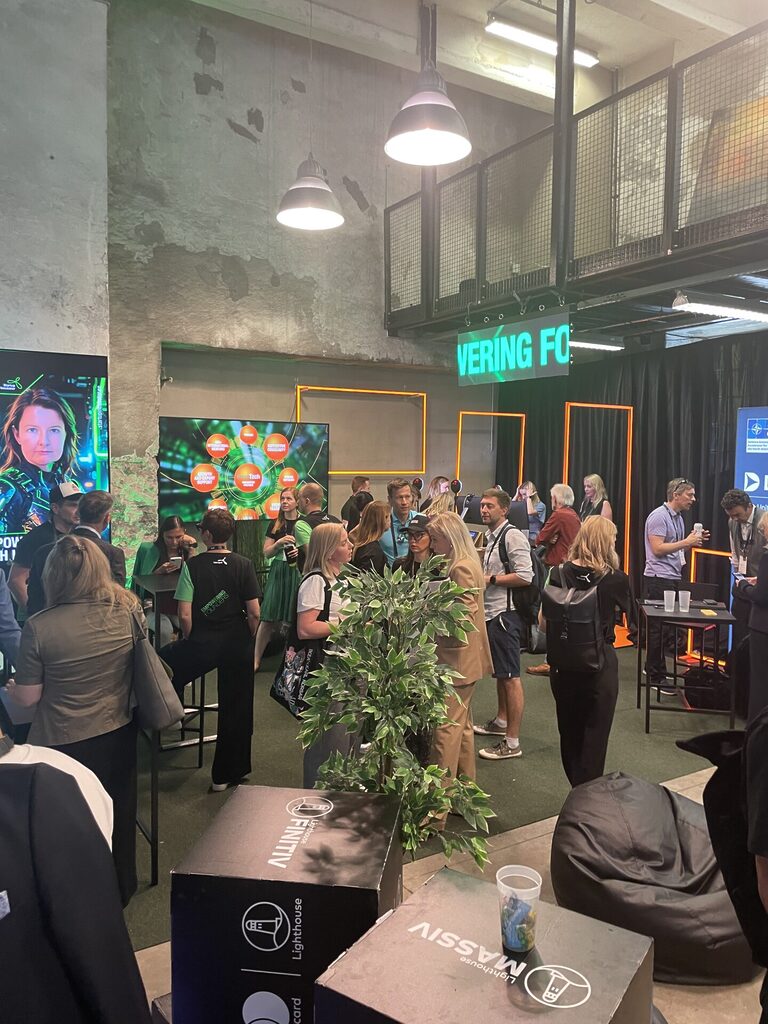


NATO DIANA Accelerator companies showcased cutting-edge defence innovations in Estonia
The dual-use technology companies that had been accepted for the NATO DIANA innovation accelerator met in Estonia on 22 May, together with local defence technology companies. High-profile international experts working in the defence industry witnessed the presentations of the technologies that can help to strengthen the defensive capacity of NATO members. The event was attended by NATO staff, investors in the defence industry, representatives from defence ministries, and other experts in the field. The Commander of the Estonian Defence Forces, General Martin Herem, also visited to learn about the solutions from the NATO DIANA accelerator’s companies.
Permanent Secretary of the Estonian Ministry of Defence Kusti Salm opened the event saying: “The Ministry of Defence has been contributing for years to the development of innovative defence technology, and we were one of the pilot sites launching the NATO DIANA programme. I am very pleased to see the first results here. It is important for us that everything that is developed within the DIANA programme should support the improvement of NATO capacity by being useable on the battlefield, and that it should give us an advantage over our adversaries. That makes it particularly important that these solutions can be integrated with the existing defence industry ecosystem, and that they can be tested and get instant feedback”.
Nine international companies have been working to develop their technologies in Estonia over the past five months, working with Estonian experts in defence and putting the technology to the test in a range of test centres.
Head of the NATO DIANA Estonia accelerator and the Tehnopol Startup Incubator Kadri Tammai said that the companies have made remarkable advances within the accelerator programme. “The companies were accepted to the accelerator at the start of January, and although some of them had turnover in the millions, they were all taking their first steps in the defence industry. The teams have by now made great leaps forward in developing their technology, having been able to test their products in some of the world’s best testing centres, and they have put financing plans in place for their businesses moving forward. The key thing for us and for the teams themselves has been that they could get instant and direct feedback from experts in defence and from end users so that the products they were developing would really meet the needs of the defence sector and be integrated with existing capacity”, she explained.
The only Estonian company to win through to the accelerator in the fierce competition against more than 1300 candidates was GaltTec, a startup from Tartu. The company uses patented technology to make fuel cells and materials for fuel cells that are much smaller and more powerful than any others on the market. GaltTec CEO Glen Kelp said that the NATO DIANA accelerator had been a real springboard for launching the work of their company forwards. “The programme was dense but valuable and has been pure gold for a company like us that is just starting up, and it gave us a shortcut to understanding the particular needs of the defence industry. The contacts that we have made through the programme have already given a clear benefit to the business operations of our company”, he said.
Chief Operating Officer of the British company Goldilock that was accepted to the NATO DIANA Estonia accelerator, Stephen Kines, said that they had not been fully aware of the dual-use potential of their solution before entering the NATO DIANA programme. “We have participated in some top accelerator programmes, but DIANA was unique in the quality of the programme content, the mentorship and the exposure to stakeholders, which allowed us to develop our dual-use messaging and technology and so was fit for purpose. In particular, the Estonian Tehnopol team were incredible in their professionalism, ensuring that not only did we individually get the best out of the programme, but that the cohort members were able to work as a team to come up with joint solutions”, he said. Goldilock is developing a patented cyber security tool for protecting critical assets and data.
The next round of applications for NATO DIANA and the next set of critical challenges for the defence sector that are seeking technological solutions will be announced this summer. All dual-use deep tech companies registered in a NATO member state can apply to the accelerator.
The product demonstration event of defence technology companies was held jointly with the Estonian Defence and Aerospace Industry Association and Invest in Estonia. The NATO DIANA accelerator in Estonia is led by the Tehnopol Startup Incubator working together with the Tartu Science Park and the business accelerator Startup Wise Guys. The funding to start the accelerator in Estonia comes from the Ministry of Economic Affairs and Communications with support from the Ministry of Foreign Affairs, the Ministry of Defence and the city of Tallinn. Estonian contributors to building the pan-Alliance network of testing centres are TalTech, the University of Tartu, Foundation CR14, the National Defence College, the Estonian Academy of Security Sciences, and the Estonian Aviation Academy.
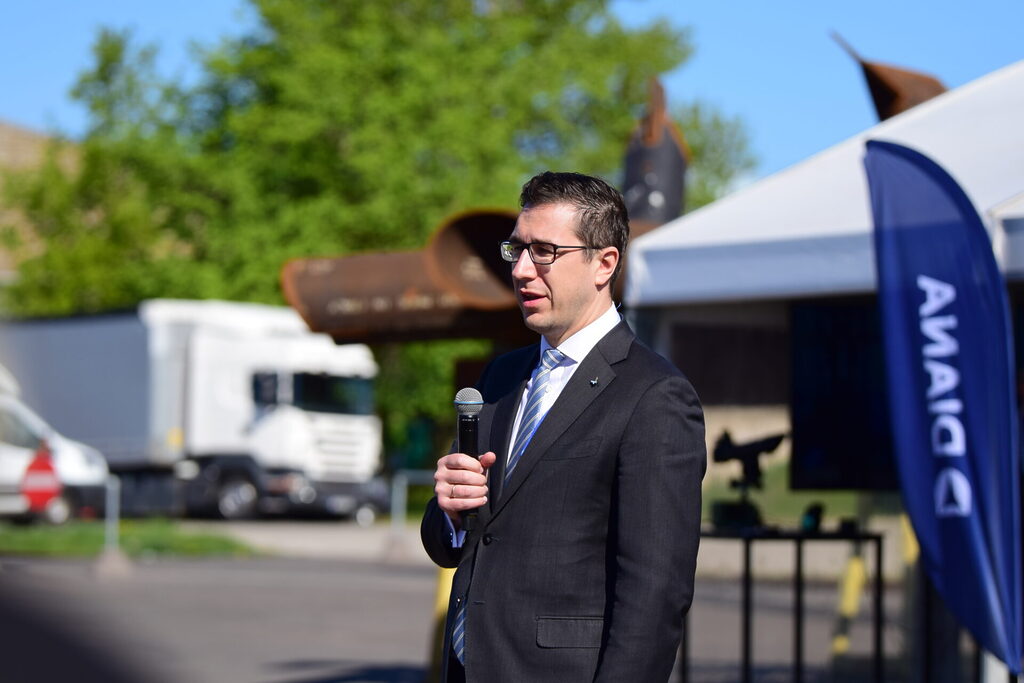
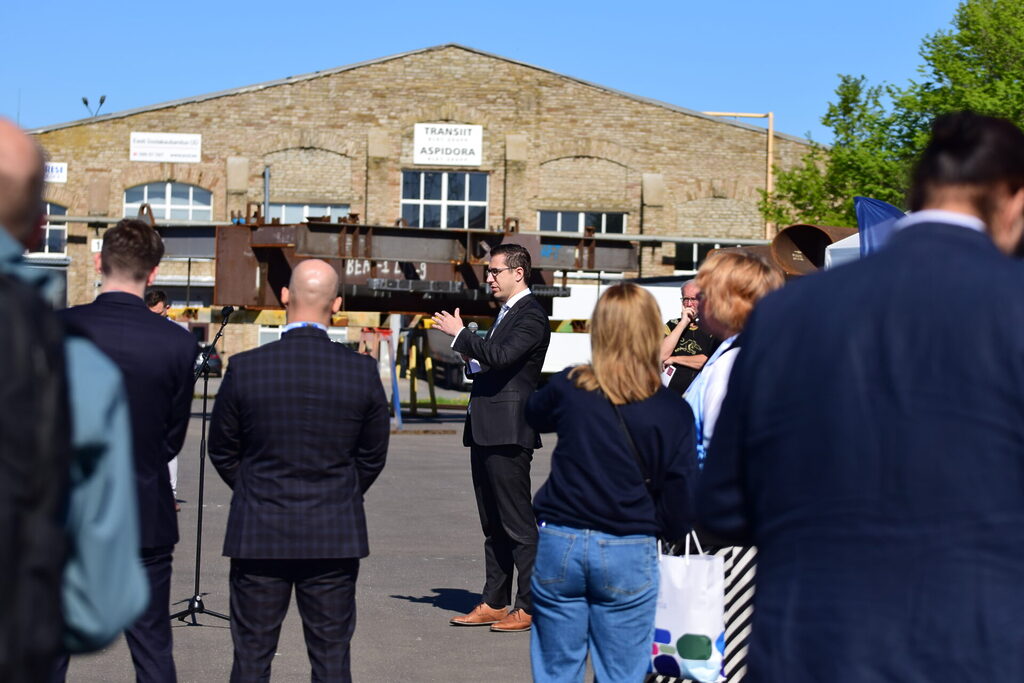
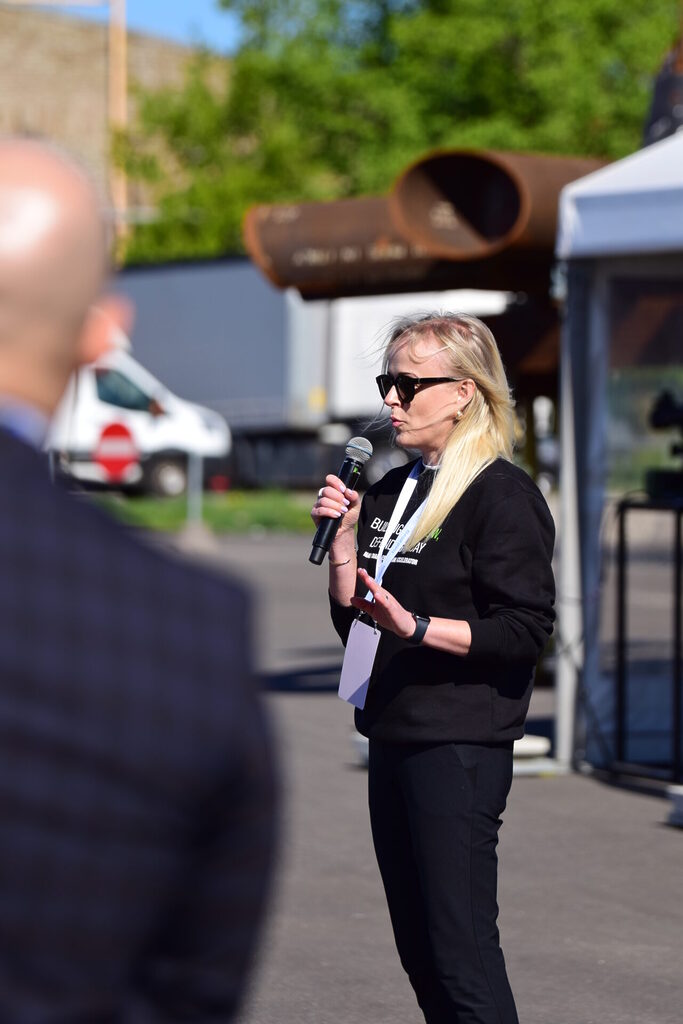
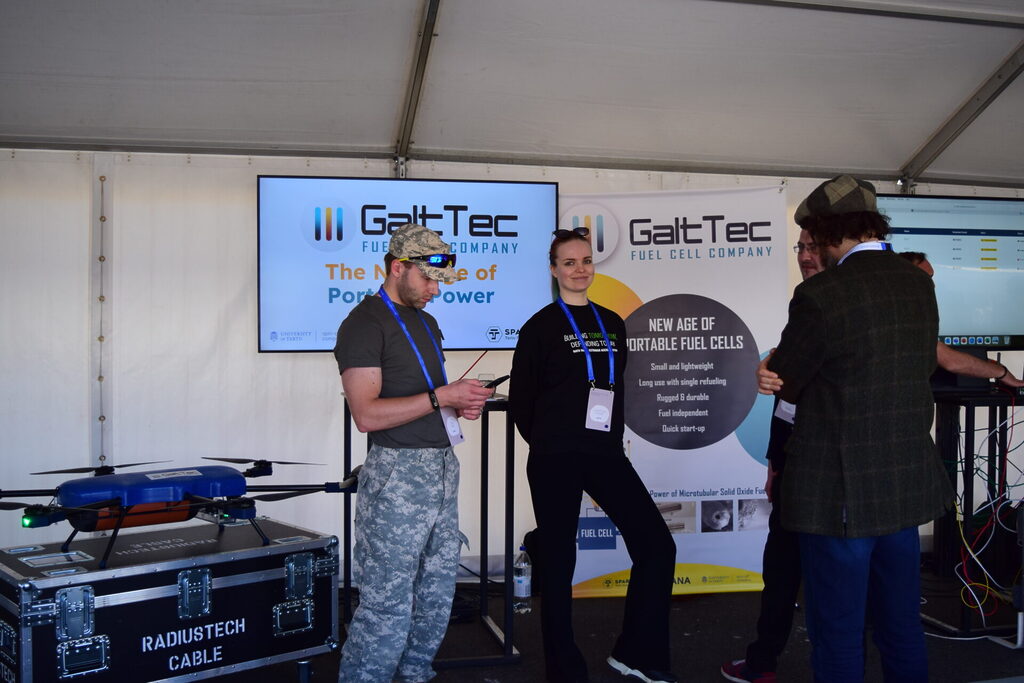
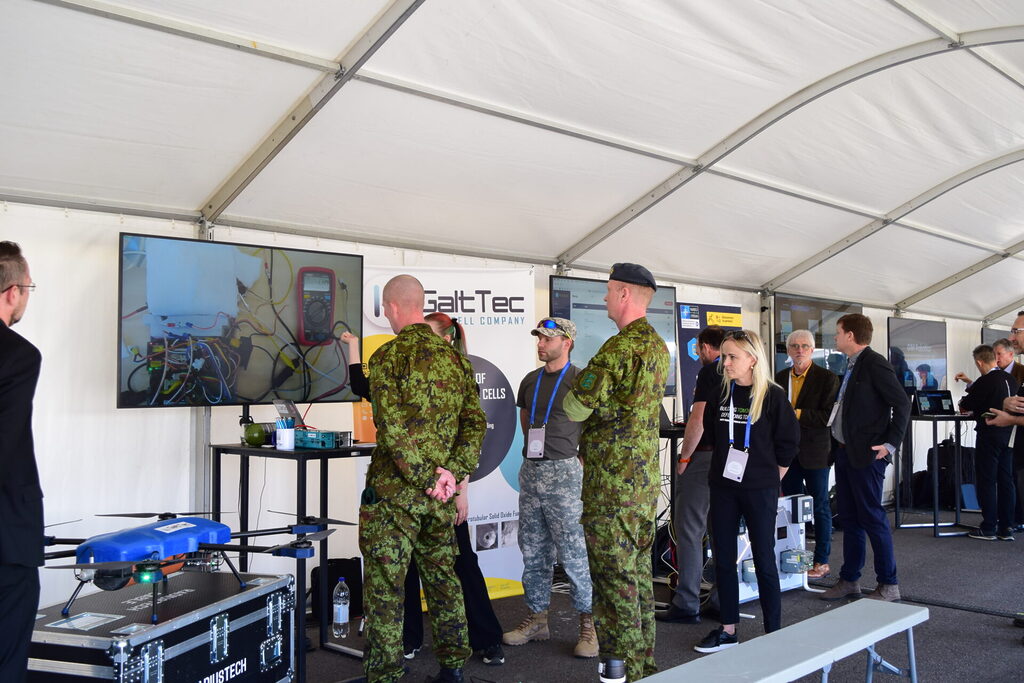
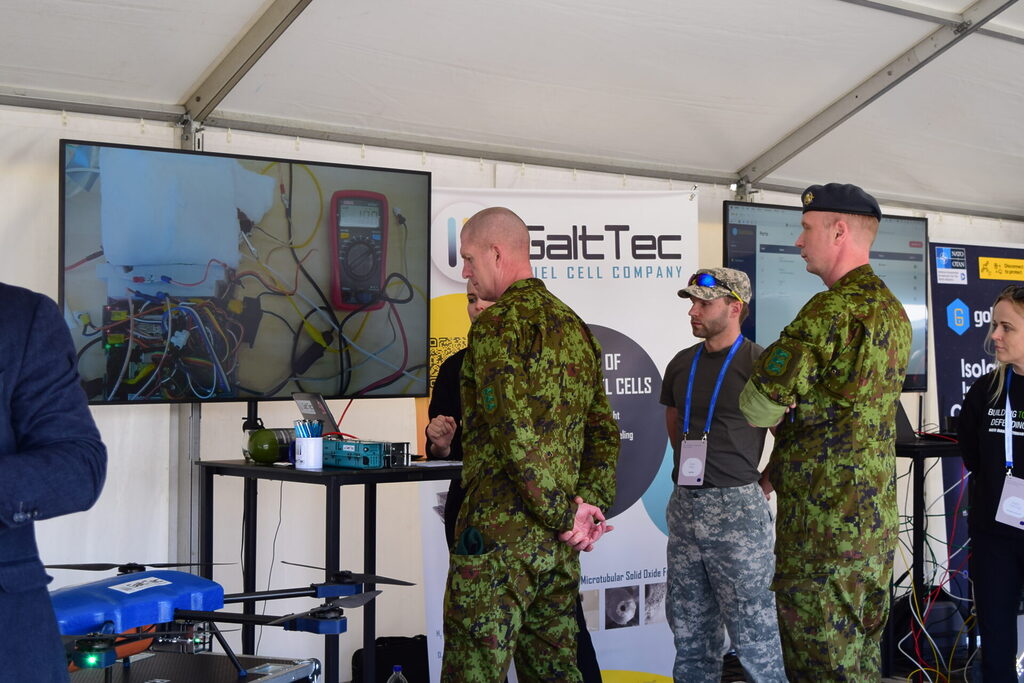
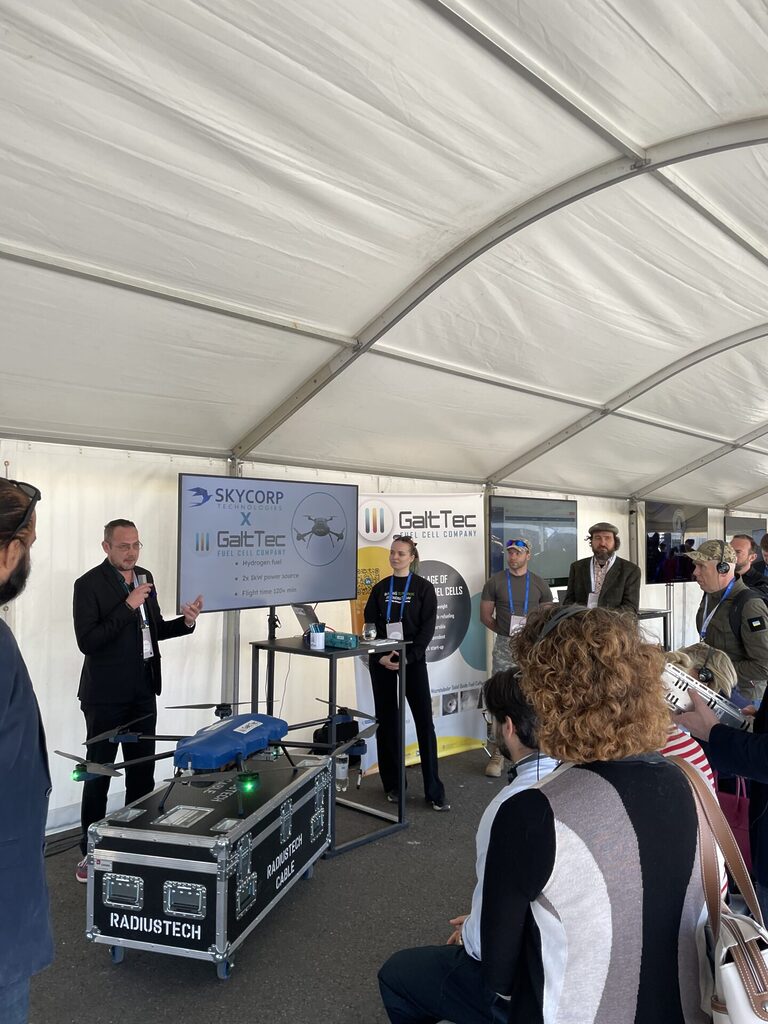
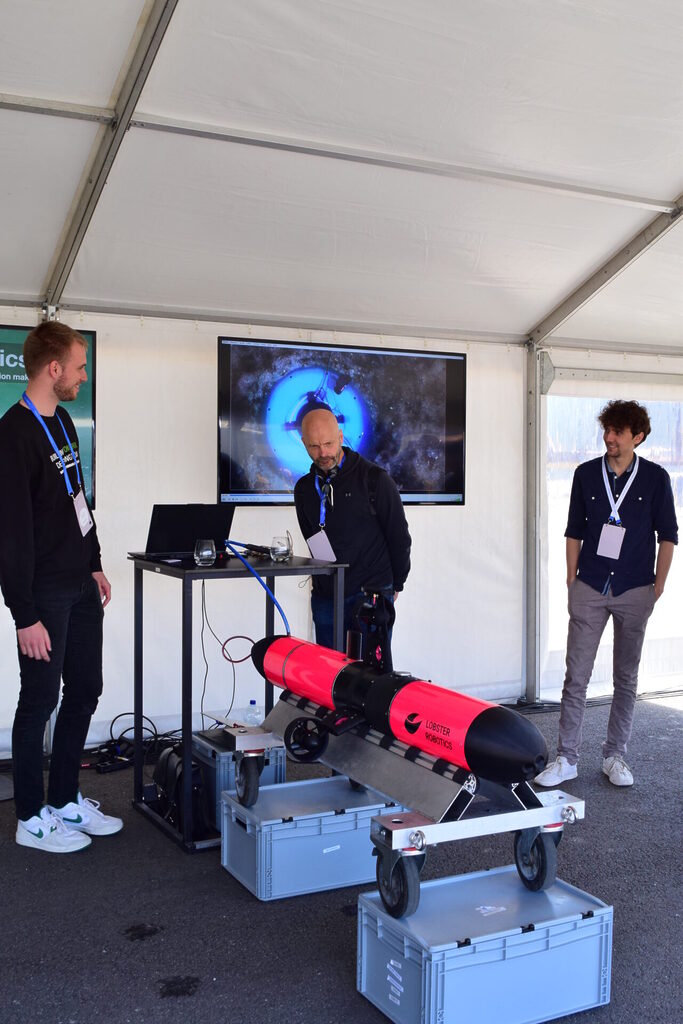
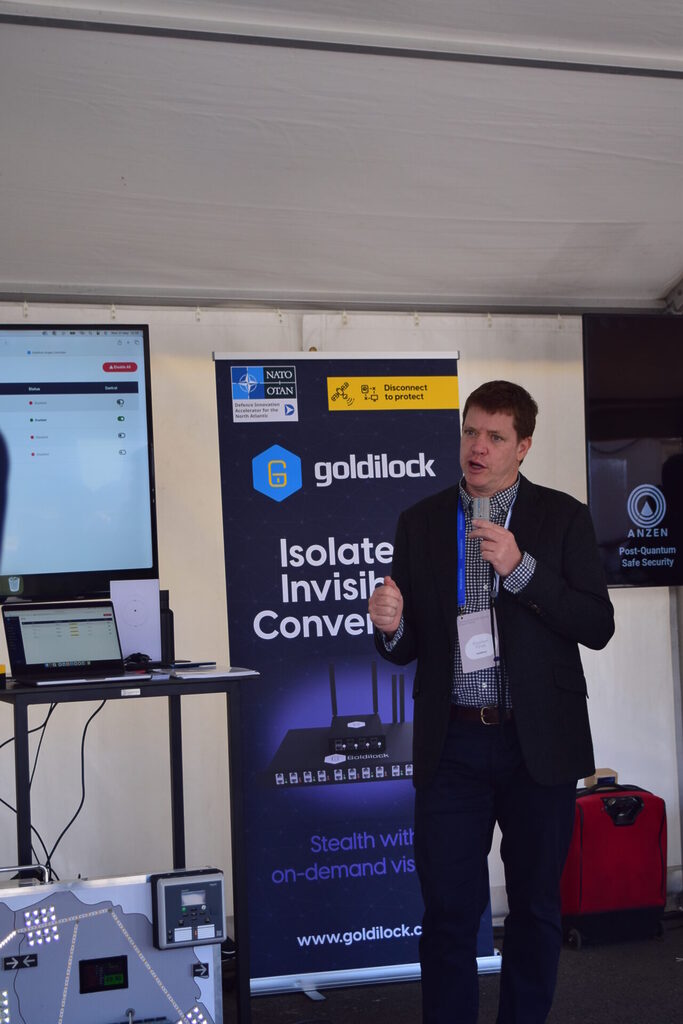
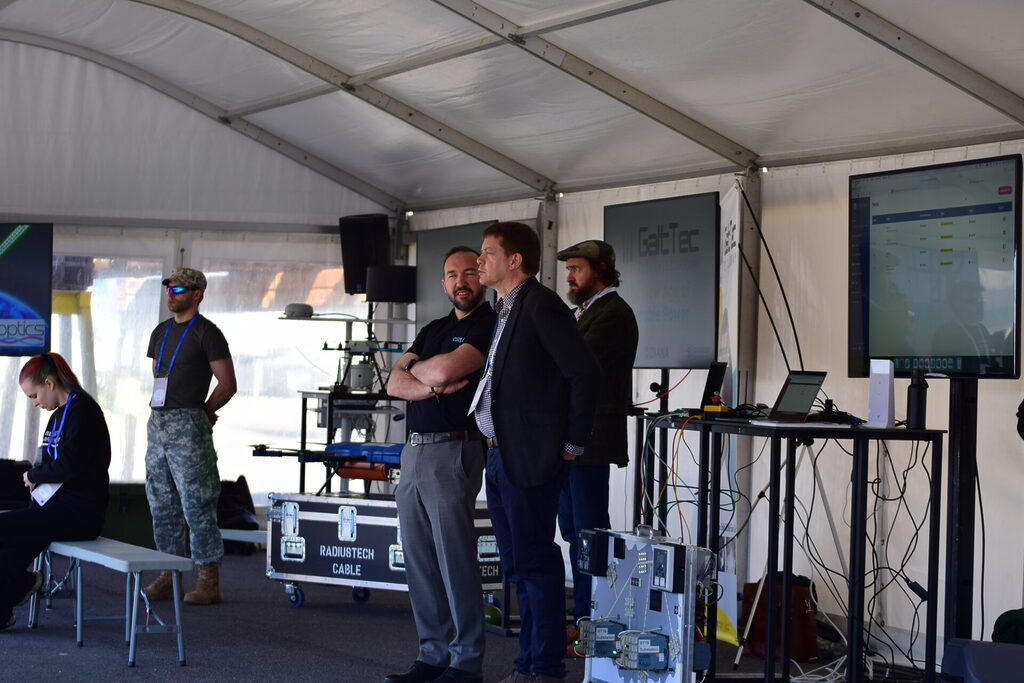
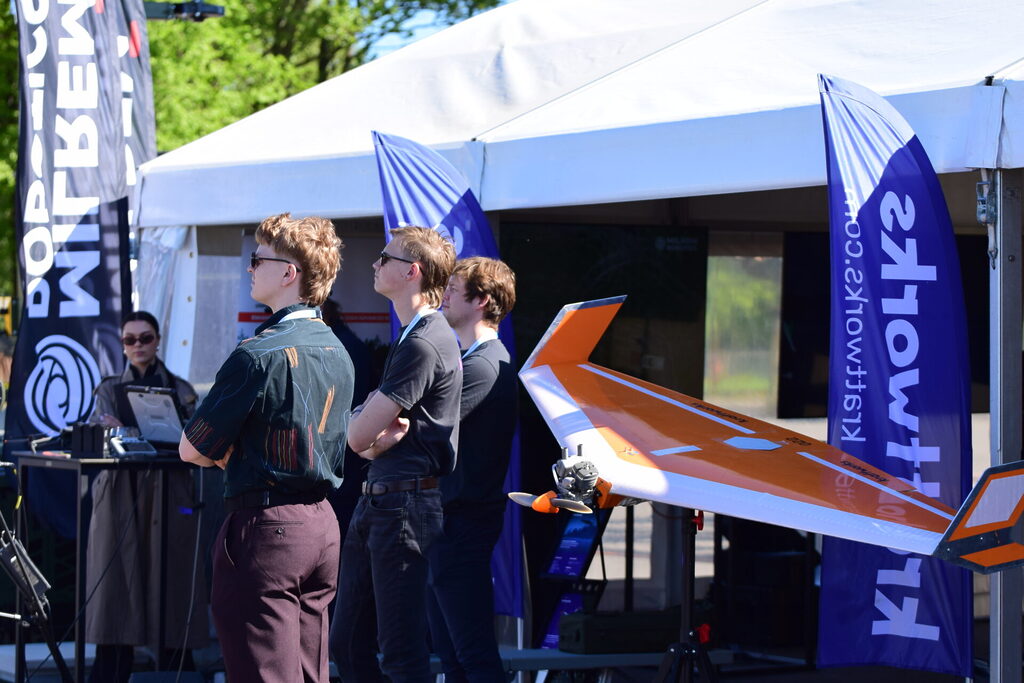
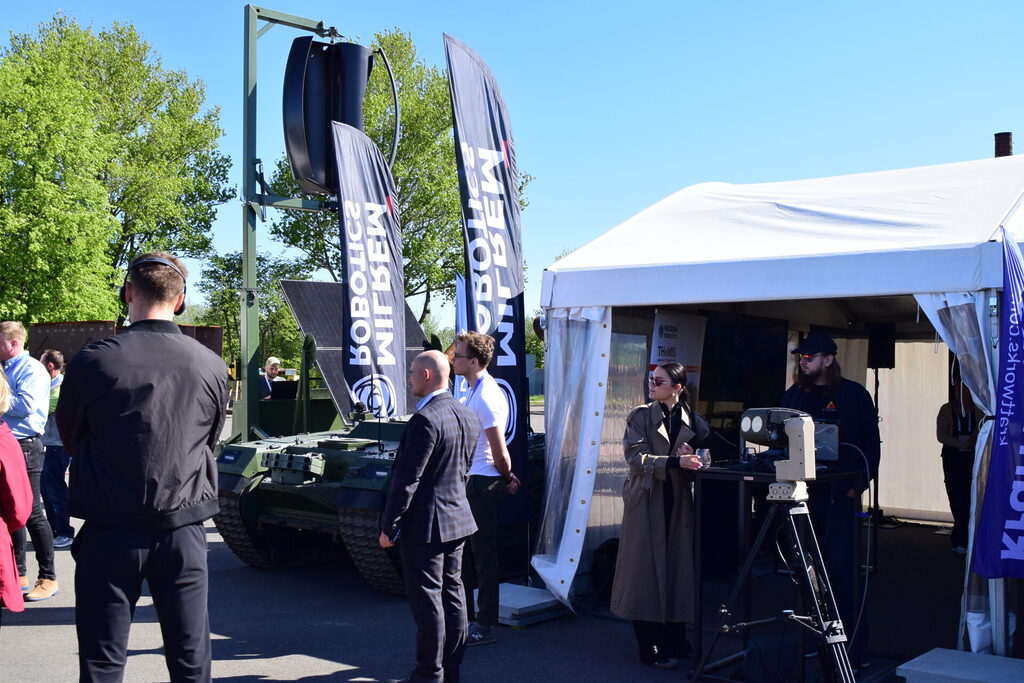
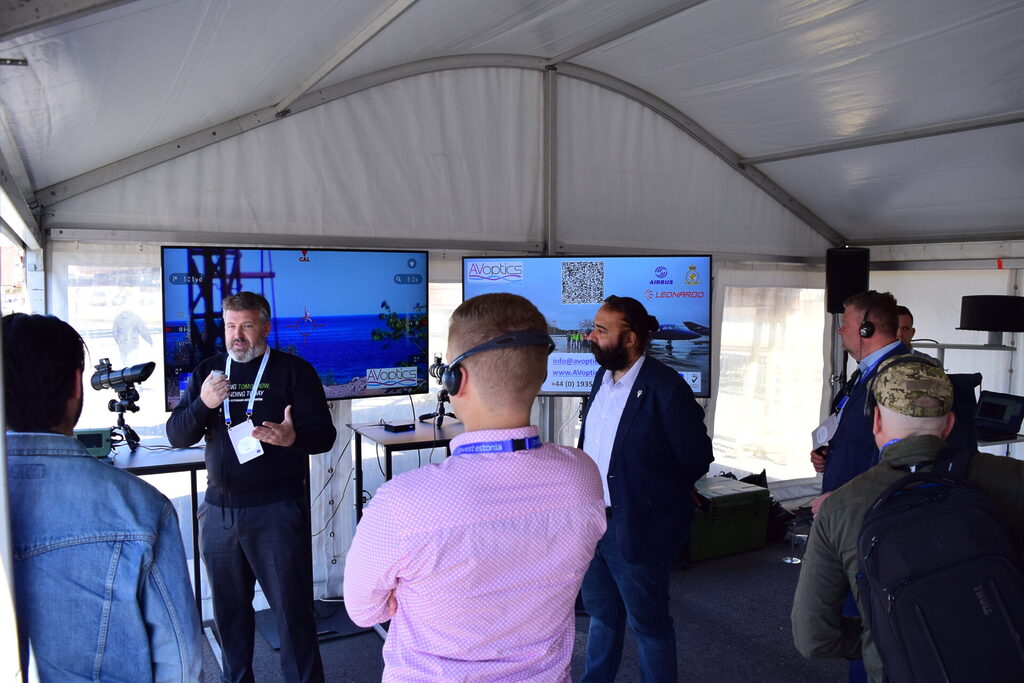
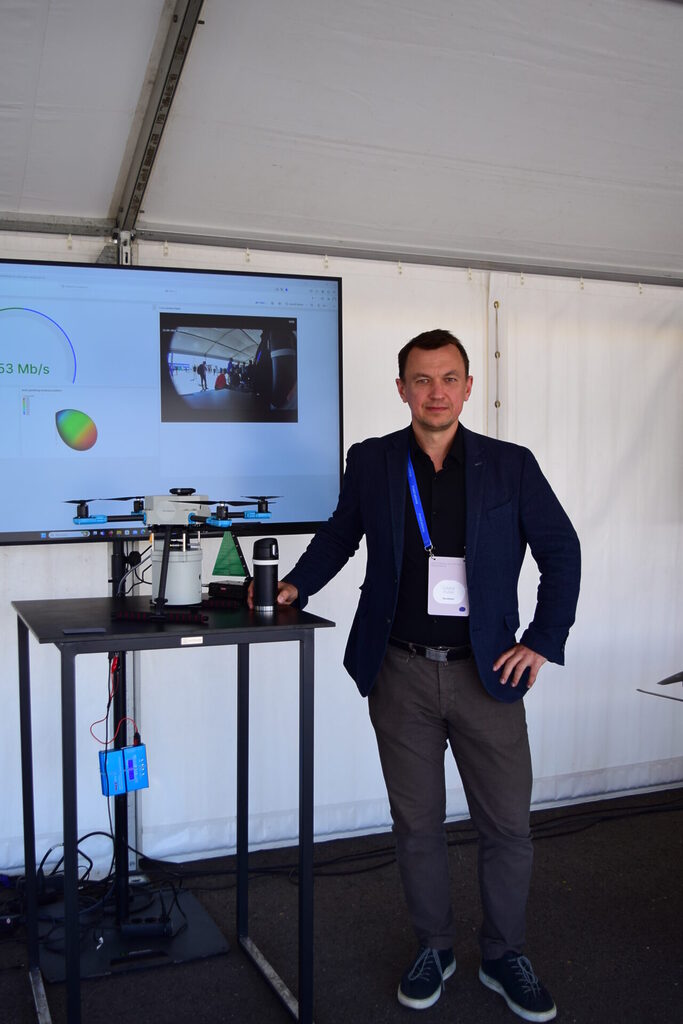
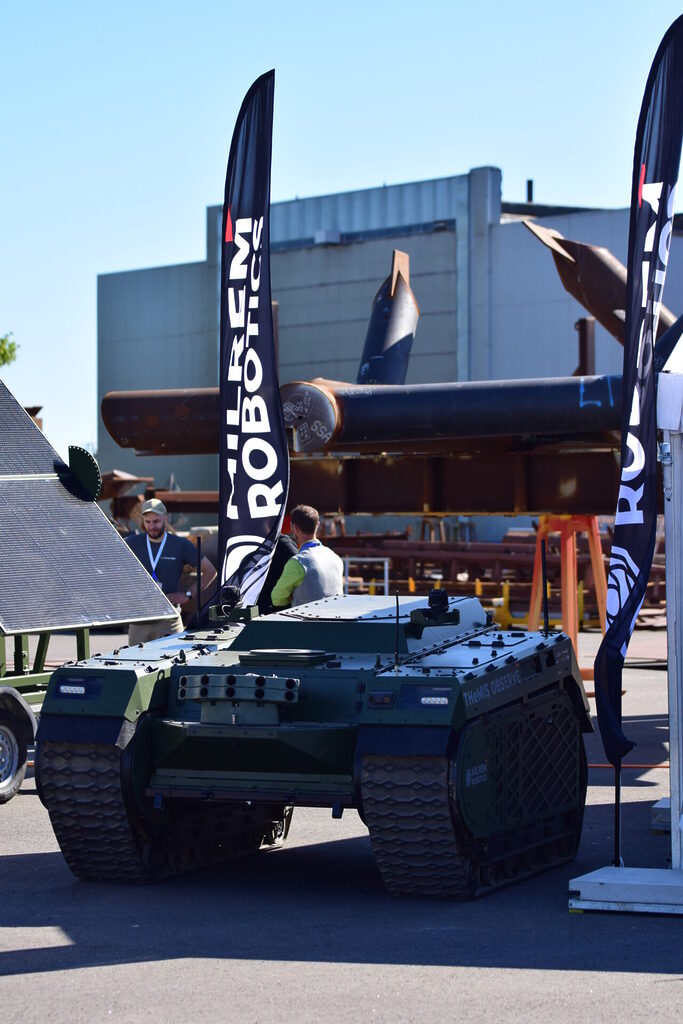
Startup Story: TraynMe X Tehnopol Startup Incubator
At the beginning of this year, 11 startups with great potential were accepted to Tehnopol Startup Incubator’s accelerator. Let’s get to know them better – here’s TraynMe!
TraynMe empowers 3D modelers and animators by harnessing the power of cutting-edge cloud infrastructure to significantly accelerate rendering workflows. Their cloud-based SaaS eliminates the burden of long and tedious rendering tasks, freeing artists to focus on what they do best: unleashing their creativity.
TraynMe is driven by a passionate international team of four founders. Argo Käsper and Kristjan Kolbre bring expertise in software engineering and experience from the startup world, hailing from Estonia. Joining them are Mal Kubati from Kosovo and Carlo Francesco Porcelli from Italy, both ambitious business students with prior startup experience who bring a fresh perspective to the team.
Argo Käsper, the CEO, introduced their plans a bit further.
How did you come up with the idea to create a startup?
“In the summer of 2023, me and Kristjan identified a growing need for easy access to rentable GPUs. We saw this at our workplace, where we had just started experimenting with training our own ML models and it was difficult to scale the necessary compute for training and serving the model. Thus initially, we envisioned catering to the machine learning (ML) segment. However, we quickly pivoted our focus towards 3D modelers and animators, recognizing it as a more promising market for validating our business model. To be clear, we didn’t turn away ML and the AI segment completely, the same technology can be successfully applied there as well. Later that same year, with the arrival of our international co-founders, we solidified a shared mission: to empower 3D artists by streamlining their rendering workflows and freeing them to focus on their creative endeavours.”
What have been the biggest challenges/failures and the biggest wins so far?
“The biggest challenges for us have been dealing with the day-to-day organizational tasks. We have two software engineers who want to write code and see the product come alive and two young and highly motivated business developers who want our product to reach as many 3D modelers as possible.
Our biggest win has been putting together the team we have right now – it’s just a perfect fit. With this team, we won the STARTERTallinn accelerator program and the Sustain-a-thon hackathon at the end of 2023. I also see a win in having had the opportunity to talk to many industry experts and leaders, such as the CEO of Blender Foundation, Ton Roosendaal.”
What sets your startup apart from competitors?
“Unlike many competitors who manage their own server infrastructure, TraynMe leverages the power of the cloud. This strategic decision allows us to:
– Focus on our core strength: We excel in developing innovative software, and by offloading hardware management, we dedicate all our resources to bringing the most valuable software solutions to our users.
– Embrace scalability: Cloud computing offers unmatched scalability. This allows us to seamlessly adapt to user demand and provide access to the latest, most powerful cloud resources.
– Stay at the forefront: The cloud computing landscape is constantly evolving, and by being embedded within it, we can leverage the latest advancements in both cloud and AI technologies.
Ultimately, this translates into a clear benefit for our users: Easy access to top-tier cloud resources, readily available through user-friendly TraynMe products.”
Why did you choose Tehnopol Startup Incubator?
“Tehnopol Startup Incubator came to us at the perfect timing. We were looking for a program to help boost our go-to-market and build our MVP. Tehnopol has valuable resources to assist us with this, ranging from access to various expert mentors to getting benefits from several vendors.”
Where do you see your startup in 1 year? And where in 5 years?
“Within the next year, our primary focus is achieving a successful launch of TraynMe’s first stable version. Witnessing a steady growth in our registered customer base will be a strong indicator of our initial success. Looking five years down the line, TraynMe aspires to become a leader in the field of remote computation. We envision ourselves facilitating a revolutionary shift towards mobile workloads, empowering users with a fast, scalable, and user-friendly cloud-based compute infrastructure.”
Who is the next (Estonian) unicorn?
“Of course, deep down, we believe TraynMe has the potential to be a major player. However, predicting the future, especially in the rapidly evolving AI landscape with countless innovative solutions emerging, is a challenging task. The path to immense success requires constant improvement, even when metrics are already impressive. Dedication and perseverance are the hallmarks of companies that achieve unicorn status.”
Which books/podcasts/publications and influencers in your field do you follow and would recommend to other aspiring entrepreneurs?
“My ambition is to start reading more books, but the one I have read and recommend to other founders, is “The Lean Startup” by Eric Ries. From podcasts I listen to local and others: “Ettemõte”, “Algorütm”, “Rööprähklejad”, “The Startup Podcast”, “Maintenance Phase”.
Media outlets I follow are mostly whatever Google Discover offers me. It has gotten really good for me last year. I primarily get and read news about other startups in the world, new tech innovations (AI) and investments.”
If you’d get a chance to meet with Elon Musk, Mark Zuckerberg, and Jeff Bezos, what would you ask them?
“I would ask them if they could go back in time to their younger version of self. Would they do it and what would they say?”
Startup Story series introduces the up-and-coming startups that are part of Tehnopol Startup Incubator’s accelerator programmes and whose journey is worth keeping an eye on. Startup Stories can be found here.
HopLocal helps Hungarian companies to build a stronger team culture
Tehnopol is part of the Northbound Scaleups (NBSCALE) project, which helps companies expand into new markets. Until May 3rd, startups have the opportunity to apply for the NBSCALE program, which includes international trainings and mentoring sessions, as well as market mapping for their businesses.
As part of the project, Parmeet Sawhney and Julia Reimann, co-founders of the Estonian startup HopLocal, which promotes a culture of organizing team events, visited Budapest. They met with potential partners to expand their activities towards Hungary. Julia Reimann provided an overview of the visit.
How did the meetings go? What were your expectations going in, and did everything proceed as planned?
“Our meetings went very well. We met the top 10 brands in various sectors like restaurants, escape rooms, Arts & Craft, etc. They all liked our business and believed in our vision. They agreed to collaborate with HopLocal, and we will have them on board this week.”
Why did you choose Hungary as the target country for this visit?
“There were several reasons for that. Firstly, Hungary is a part of our go-to-market strategy as our existing top client and a few potential clients we have identified have a presence in Budapest. Secondly, from a business perspective, Hungary is famous for its complex business operations management and enormous operational bureaucracy in employee benefits management. That’s precisely the solution HopLocal offers – we make operations easy for companies. At the same time, Hungary is a developing country with a positive trend of improving its operations procedures and making it more attractive for international businesses.”
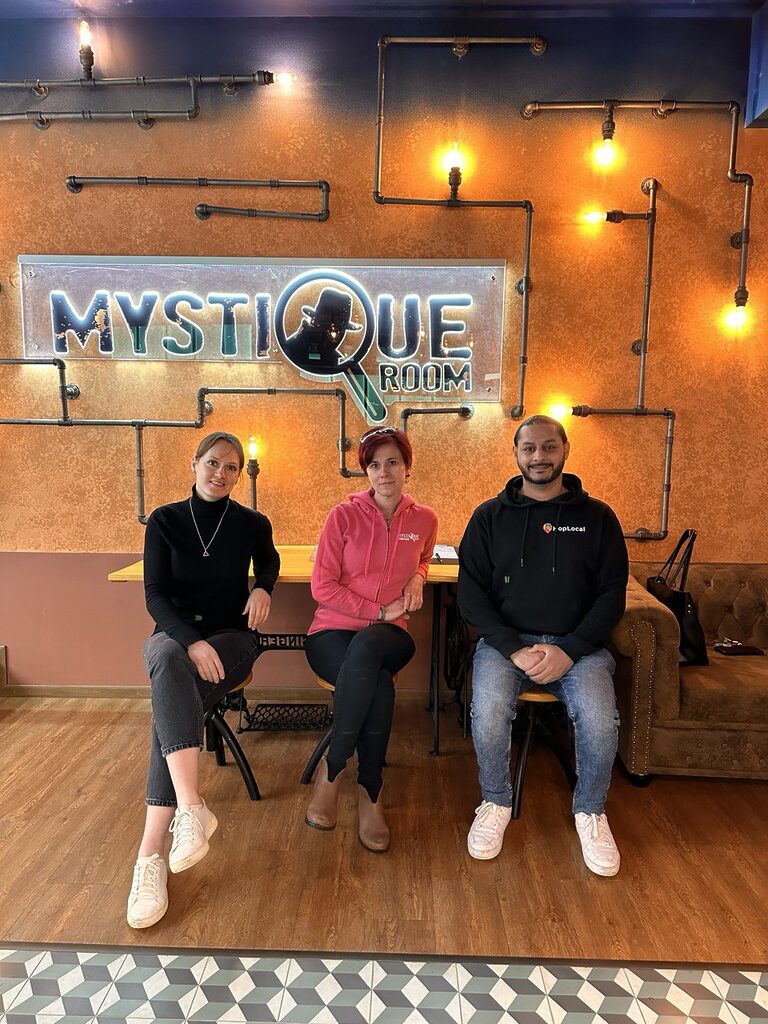
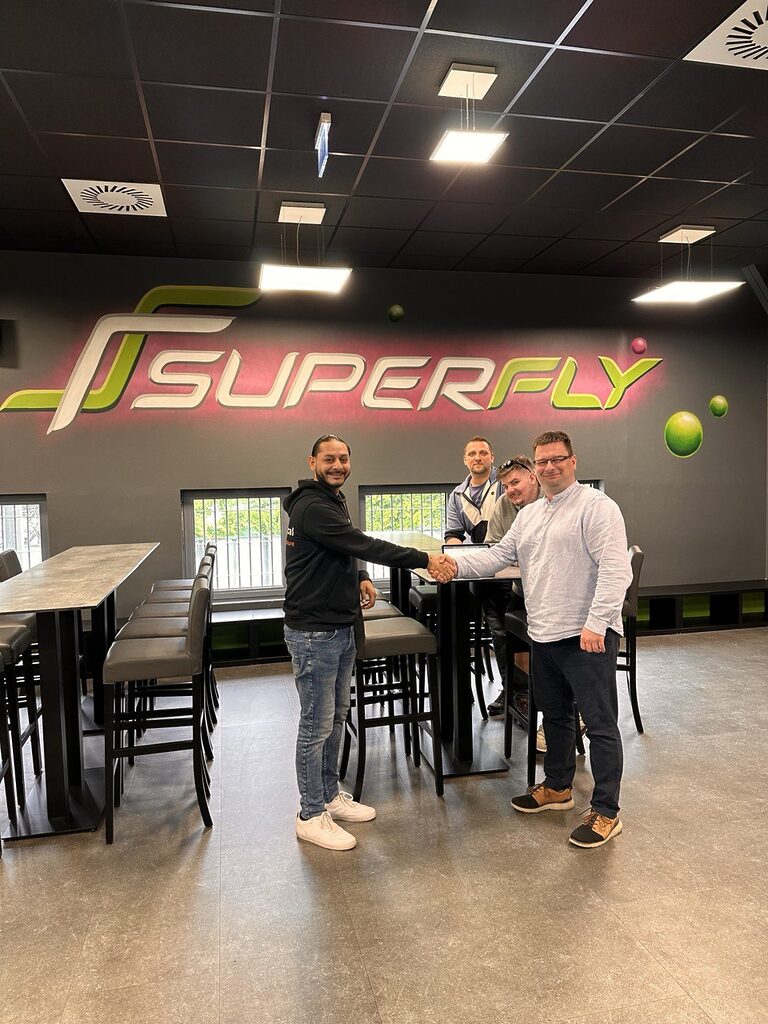
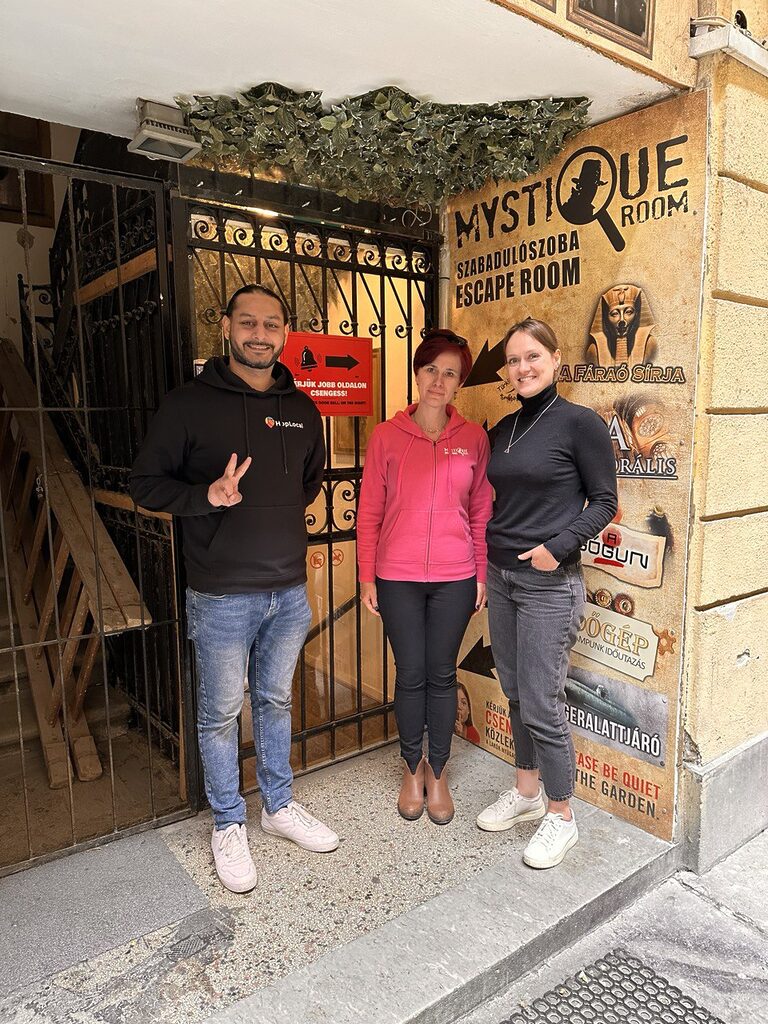
Are there any competitors in the Hungarian market offering similar products or services? What sets you apart from them?
“According to our research and feedback from our partners there, we don’t have a direct competitor in Hungary. Although many venues have their packages for team activities, they do not mainly target corporations, and no one is offering culture-building possibilities as we do.”
Will you have to adapt your product when entering the Hungarian market, and if so, how?
“In the future, we plan to have localization for Hungary by adding the Hungarian language to the platform and customer support. Also, we are planning to have a sales representative there.”
What are the company’s near-term plans for expansion, both domestically and internationally?
“Our near-future plans are to onboard all the partners we met in Budapest onto our platform; to acquire 2 more big corporate clients as users in both Estonia and Hungary; to secure monthly subscriptions from our top 3 clients in both markets; to achieve a monthly sales milestone of 35K euros; and to close the first round of investment.”
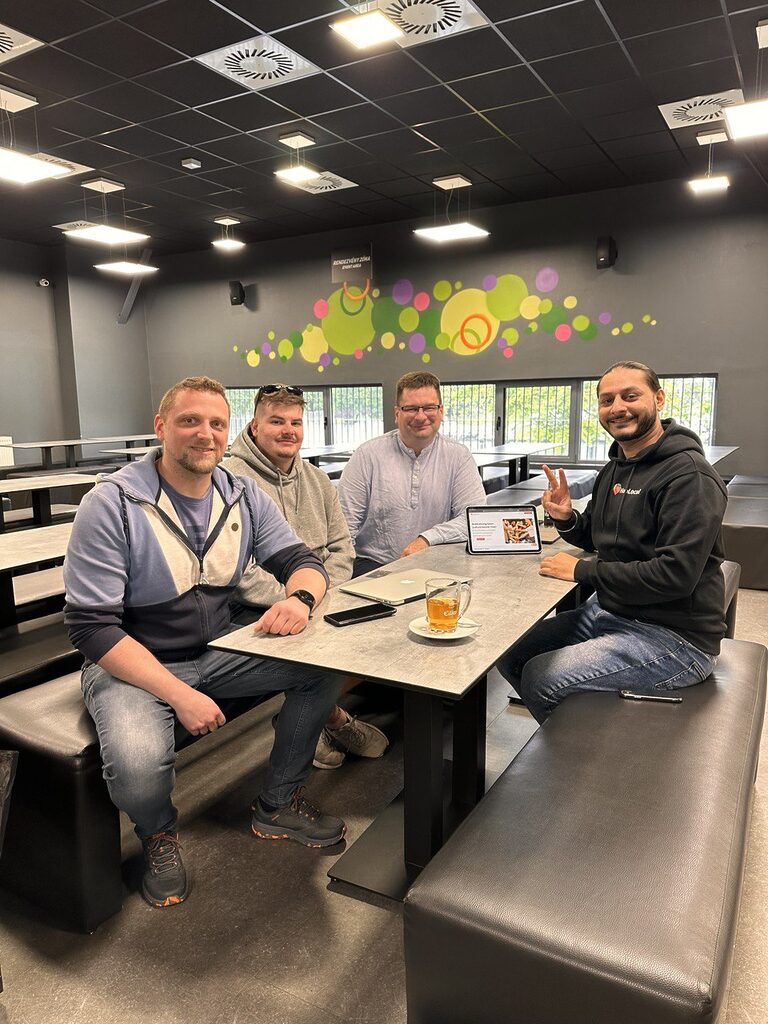
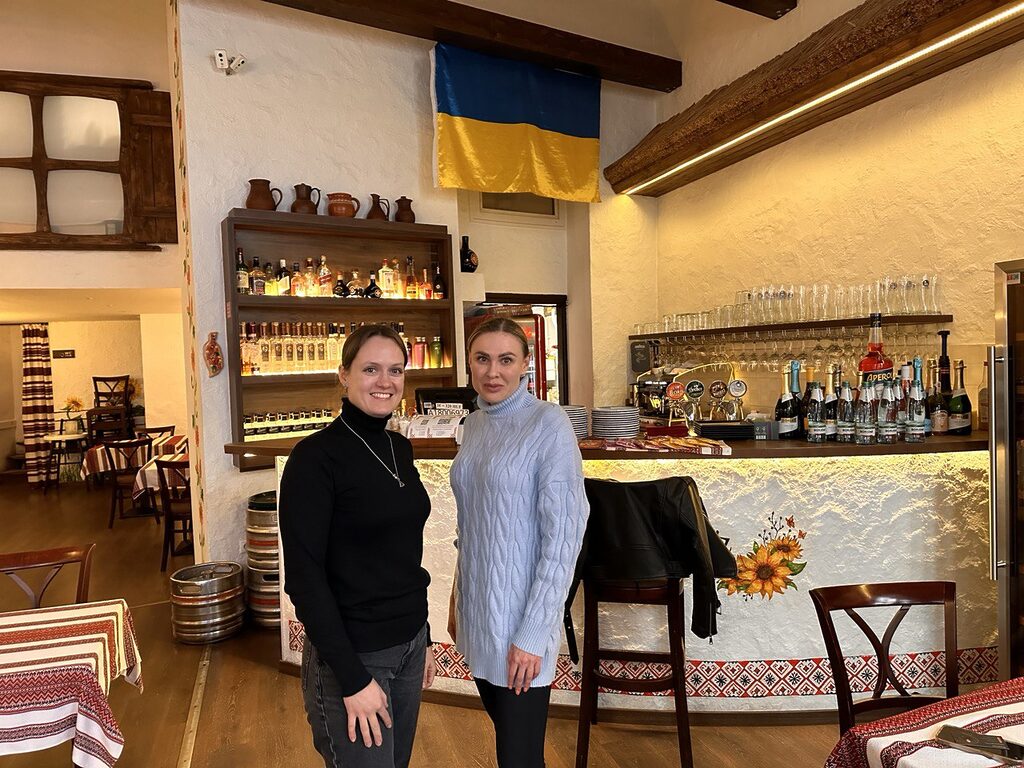

Northbound Scaleups (NBSCALE) is a joint project between Tehnopol, Turku Science Park (Finland), and Movexum (Sweden), aimed at helping companies expand into new markets. If you’re interested in applying for the program, you can find more information here.

















